If diesel engines more enduring than gasoline, then which diesel engine the most reliable? This is interesting, first of all, for those who travel a lot, for example, people whose activities involve frequent trips. After all, it is known that diesel engines are famous for their reliability and long life compared to gasoline ones. Also, such information will be useful to all other motorists, for general development.
Which diesel engine is the most reliable for its class of car, why has the popularity of diesel engines been growing lately, and which power unit should be preferred when buying a car? The answers to these questions will be disclosed in this material.
Why do people love diesels so much?
We will talk about diesel engines in passenger cars, because, as you know, diesel engines are always installed on special equipment, so it will not work to compare.
There are always some legends about the huge resource of diesel engines that they nurse without major repairs up to 1 million kilometers. There are no such stories about gasoline engines.
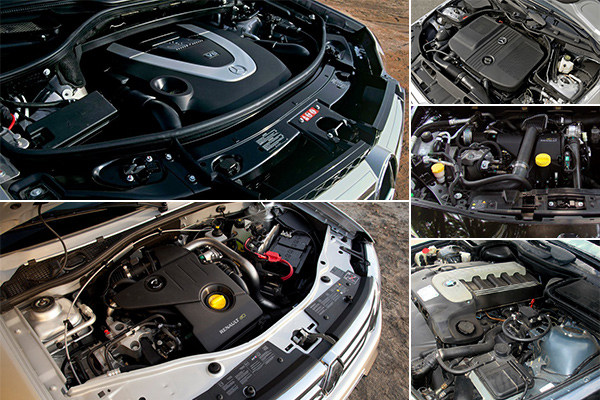
In addition to a great resource, the glory of diesel engines also rests on their reliability. Like, a diesel engine always works stably, starts up in any weather and withstands the most severe operating conditions. While gasoline sin with some whims. So it turns out that there are two main advantages of a diesel engine compared to gasoline.
The reliability and endurance of diesel engines is due to their design and operating mode. The design of a diesel engine is somewhat simpler and includes fewer elements that work after starting than that of a gasoline counterpart. And during operation, the diesel engine always runs at lower speeds, which gives a long wear of parts.
Another huge plus for diesels is fuel consumption. If we take two modern engines, diesel and gasoline with identical power in Horse power oh, then the diesel fuel consumption will be less, by 30-40%.
It is these main factors that make people opt for diesel power units. By the way, in recent years, the demand for cars with diesel engines, even premium brands, has noticeably increased. This is explained by the fact that there is no longer a stereotype that diesel engines are designed for pensioners, that is, for a quiet ride, with a complete lack of a sporty character.
Modern diesel engines are no longer inferior in dynamics to gasoline ones, a vivid example of this is BMW, which created the fastest diesel engine, which has a power of 435 horsepower and accelerates to 100 km / h in 4.5 seconds. Such an indicator in terms of dynamics will be envied by many gasoline engines with a completely sporty character.

The most reliable diesel engines in Russia
Of all the diesel vehicles that are still in operation on the territory of the Russian Federation, there are several that have gained a reputation as "indestructible", even in harsh conditions.
- The most reliable, unpretentious and hardy from Mercedes are the motors of the OM602 series. They are in-line 5-cylinder and 10-valve, with power from 90 to 130 hp.
Due to their popularity, they held out on the assembly line for a record long time, from 1985 to 2002. They have a very well-thought-out design, in which the emphasis is on reliability and durability. Also, mechanical injection pumps from Bosch showed themselves very well, which were installed on such motors with which there were never any problems.
You can meet such engines on passenger models - W124, W201, on trucks - T1 and Sprinter, on SUVs - Gelentwagen and even on the 210th model (W210). Such models can be found daily on the streets of your city, which shows their durability, because most cars run far beyond 500 thousand km, and some have more than 1 million km.
- Well-known diesel power units from BMW are not inferior in quality and reliability to Mercedes. BMW became famous for its in-line 6-cylinder diesel engines, which, unlike the OM602 series from Mercedes, had more power and, accordingly, improved dynamic performance.
Diesels, which were equipped with models BMW different series had power from 163 to 286 hp, which made them not at all "boring". The most popular Bavarian engine is the M57, which was released in 1998 and was produced until 2008. It was the 57th series that was equipped with most of the diesel BMWs known in Russia, from the “one” to the “seven”. Its predecessor was the M51, cars with which can still be found in our time, the runs of which have long passed the mark of 500 thousand km.
- Not only german motors won the glory of "indestructible", there are also options from the Japanese. The best Japanese diesel engine is marked 1HZ. This is an in-line six, with a volume of 4.2 liters. The design is very similar to the Mercedes, also 2 valves per cylinder and a mechanical injection pump. This motor was produced from 1990 to 1998, has a power of 129 hp. It can also be found on our roads. Representative 1HZ is Toyota Land Cruiser 80 and 100. The mileage of some specimens reached a million kilometers, which speaks of reliability.
![]()
What engine to buy a car with
Disputes between diesel and gasoline never subside, there are avid "dieselists", and there are devoted fans of gasoline engines. To understand which engine is preferred, you need to figure out what the automotive market offers and for what purposes the car is purchased.
As mentioned above, diesel engines may not be inferior in dynamics to sports gasoline ones. But, this applies only to top models. famous brands. Diesel cars, which are sold in car dealerships and are available to the public, cannot boast of high dynamic performance. Gasoline engines will be faster. Therefore, for people who love active and fast driving, gasoline units are better suited.
Diesel, on the other hand, is ideal for people who need to travel a lot on country roads, and it is here that its main plus manifests itself in the form of low fuel consumption. Modern diesel engines can show highway consumption within 4 liters per hundred.
Also, a diesel engine is preferable in the case of a calm and measured ride, because its maximum torque comes much earlier, almost from idle and has a larger range, while for gasoline it starts at 2.5-3 thousand revolutions. To answer the question of which diesel engine is the most reliable among those offered on modern automotive market time needs to pass. After all, the design of the motors has changed significantly, and perhaps they have become even more reliable.

Long gone are the days when diesel fuel was used exclusively in heavy trucks and ships - now this type of fuel has become the same integral attribute of modern passenger car mobile. You can also forget about such a property of a diesel car as slowness, since modern technologies have made it possible to create powerful and economical engines at the same time. Sometimes it seems that diesel is gradually replacing gasoline from the general automotive fuel market, for example, in Europe, more than half of the new cars sold are already using. Therefore, it is worth considering cars diesel cars more carefully and say what exactly they attract consumers.
More and more motorists are turning their attention to diesel cars.
Power
Thanks to the efficiency of diesel engines, many engineers and heads of automobile corporations see the future in them. This leads to the intensification of developments in the direction of improving diesel power units. As a result, they are becoming more and more powerful, gradually surpassing their gasoline counterparts with a similar displacement in most parameters. Let's see which serial diesel engines are considered the most powerful.
For the legendary luxury crossover, the most powerful production diesel is offered from those that are serially installed on passenger cars. Diesel power unit designed by Volkswagen and finalized by Porsche specialists - its power is increased by 42 horsepower, up to 382 hp. from. The motor is the real pride of the company - it is both more powerful and more economical than its competitors. Indeed, paired with an eight-speed "automatic" it requires only 10 liters of fuel with a relaxed driving style. Even if you actively press on the gas pedal, the passenger diesel Porsche will keep the fuel consumption within 15 liters / 100 km.
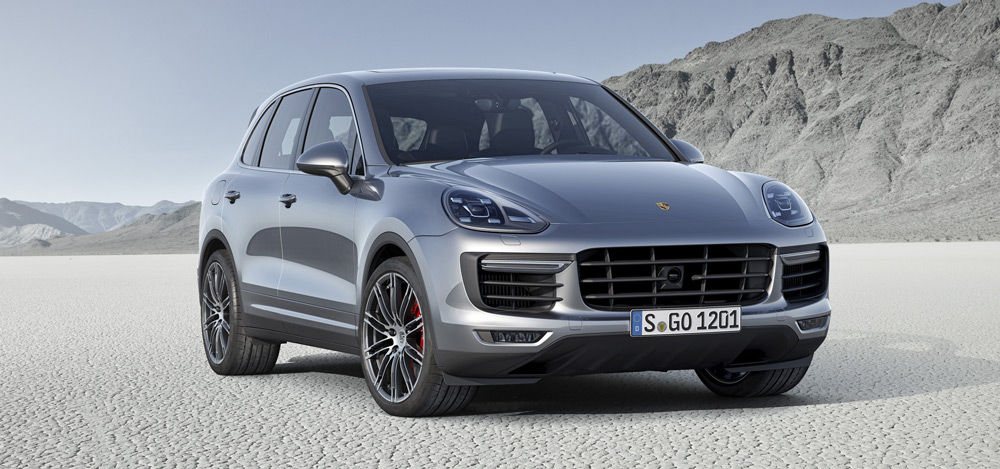
A large crossover accelerates to "hundreds" in a little less than 6 seconds - just a second slower than the "top" modification of the Turbo S. Max Speed is 252 kilometers per hour, due to which a diesel car can be considered unsurpassed on a suburban highway - it confidently overtakes compact cars and even most popular sports cars. Driving such a powerful machine is incredibly easy, since maximum torque is already at around 2750 rpm and continues almost to the cutoff.
The Bavarian sedan of the fifth series also got into the rating of the best diesel cars. It is equipped with a unique engine running on heavy fuel - with a volume of only 3 liters, it develops 381 horsepower, which is 1 less than that of Porsche. The secret of German engineers lies in the installation of three turbines at once, which provide a significant increase in the performance of a diesel engine. In addition, in comparison with the basic version power unit, which has one turbine and develops 258 horsepower, changes have been made to the intake and exhaust systems, a new one has been installed the electronic unit, improved ignition system. Interestingly, the motor is recognized as one of the most reliable in its class - the Bavarians managed to very accurately select the settings, optimizing the operation of all engine components.

The acceleration of this diesel car can be compared with the performance of a sports car - it takes almost 5 seconds to reach 100 km / h. The maximum speed of movement is limited to 250 km/h, but experts say that without an electronic lock it is quite possible to reach the milestone of 280 km/h. Fuel consumption is surprisingly low - even with very active driving, it is possible to keep them within 12 liters / 100 km. The record shown by this diesel car is 5.5 liters per 100 km of driving on a uniform flat track. This figure seems fantastic with such power, however, diesel bmw engine really capable.
A few years ago, the best diesel car could be considered a prestigious volkswagen sedan Phaeton, which used an incredible power unit in its design with a V10 layout. This diesel monster had a volume of 5 liters and was equipped with only two valves for each cylinder. Despite its archaic layout, the engine was impressive in performance - its power was 313 horsepower. In addition to the Phaeton, this diesel engine was also installed on the Touareg SUV, which had a huge traction just right. After 2008, the diesel V10 was discontinued, replaced by a more modern and economical 4.2-liter V8 - one of its modifications we can see on the Porsche Cayenne.
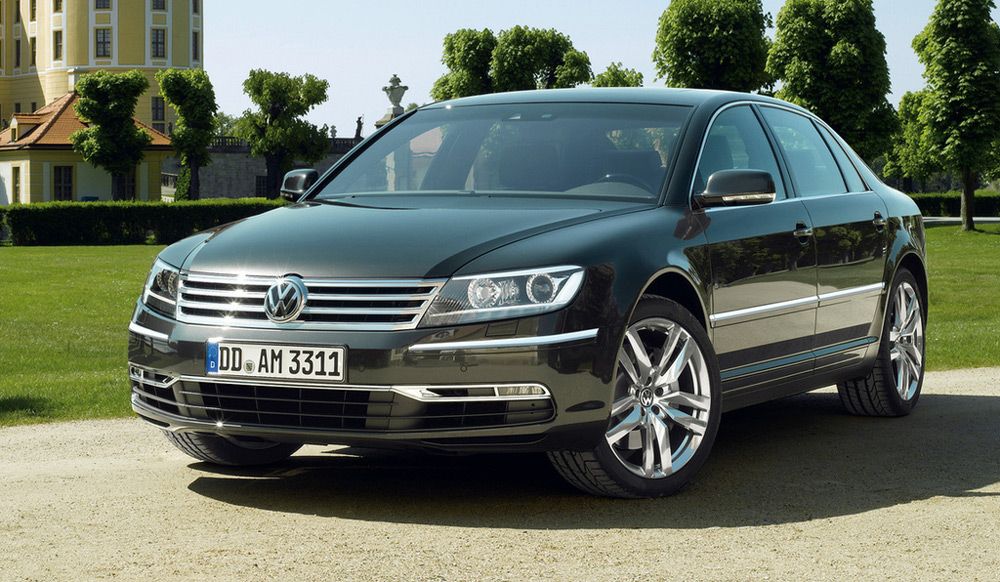
However, if the cars discussed above are with a diesel engine, then the Phaeton consumes up to 20 liters of fuel during dynamic movement within the city. Even if you try hard to drive calmly and save fuel, the diesel engine of an executive sedan will consume 10-12 liters. The dynamics cannot be called very turbulent - a limit of 250 km / h seems to be a natural limit for this car, and acceleration to “hundreds” is carried out in 7 seconds. But you should pay attention to the interior equipment of such a diesel car - you can find upholstery made of exclusive leather and natural wood panels, as well as eight airbags, four-zone climate control and all conceivable driving assistance systems.
economy
Diesel engines are valued for their low fuel consumption, which helps reduce vehicle operating costs compared to petrol units. The engineers of the world's leading companies have also succeeded in this - if we carefully follow the trend and continue it, we can imagine that in a couple of decades, several grams of fuel will be needed per 100 kilometers. Let's see what kind of diesel cars will help reduce the costs of the motorist to a minimum.
A few years ago, the Spanish division of Volkswagen made a splash by introducing a car that consumes less than 3 liters of fuel per 100 kilometers. This was the SEAT Ibiza in a special version of Ecomotive. A 1.2-liter diesel engine equipped with start-stop system consumes approximately 2.9 liters of fuel when driving on a flat road outside the city. Even with the most dynamic driving, this figure can be kept within 3.5–4 liters / 100 km. The car gained immense popularity in Europe and several times received awards for efficiency from world organizations.
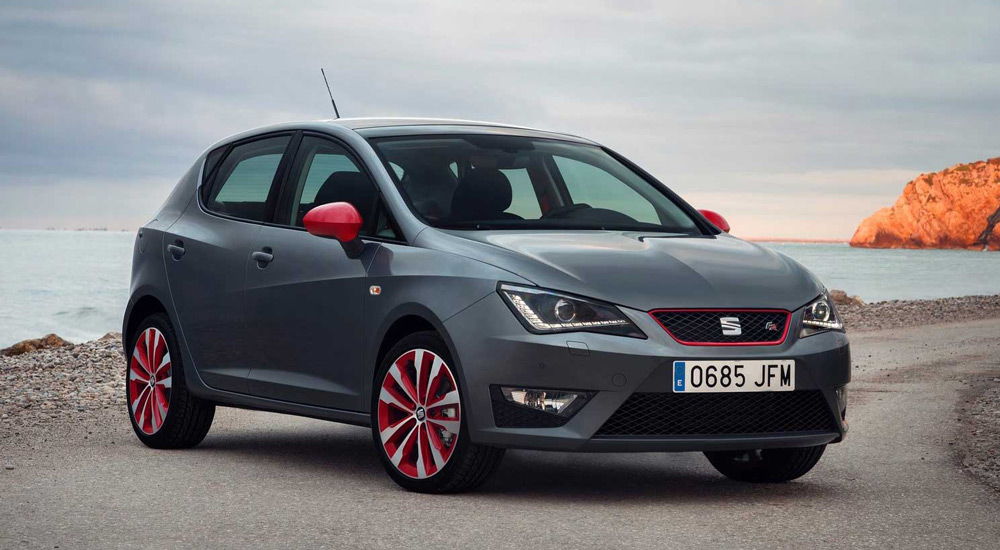
Such savings were achieved through the use of special aerodynamic elements, including a plug in place of a conventional grille, other bumpers and sills, as well as other body kit elements. In addition, the diesel engine developed by Volkswagen engineers is also very good. In the past generation, the car was equipped with an engine of similar power, with a volume larger by 0.7 liters and fuel consumption in the range of 7–9 liters / 100 km. A similar power unit 1.2 is installed on Volkswagen cars and Skoda, whose fuel consumption is 3.3-5 liters.
One of the best places goes to the diesel modification of the Peugeot 308. When driving on the highway, it requires only 3.3 liters of fuel to cover 100 kilometers. Even if you significantly increase the pace of movement or enter a large city, the figure will increase only to 5 liters. It is simply impossible to call this diesel car slow - with a power of 120 horsepower, it accelerates to 100 km / h in about 11.5 seconds.
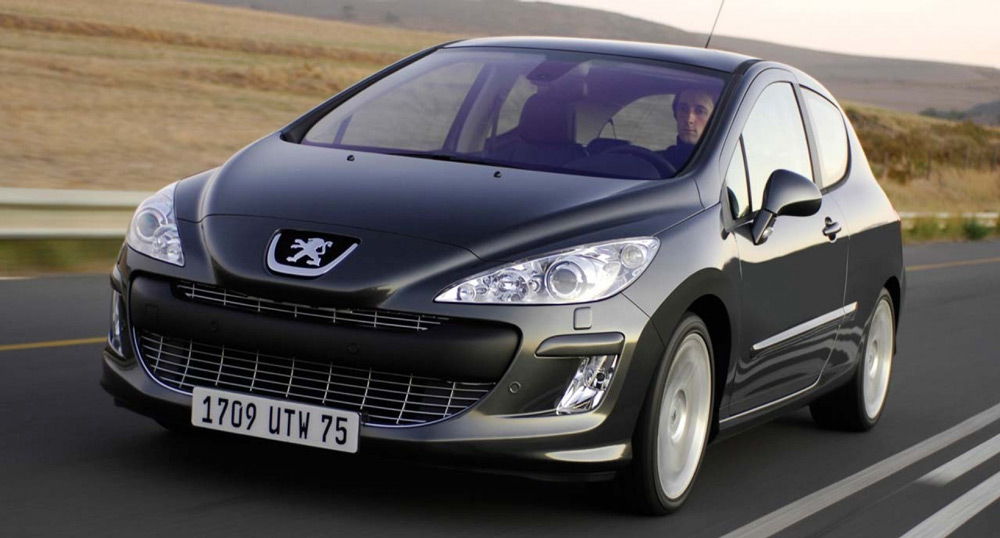
The main reason for the economy of such a diesel passenger car is the use of an injection system with a particularly high pressure. Along the way, another goal is achieved, represented by a decrease in exhaust toxicity - by installing a new generation Common Rail ramp, the car complies with Euro-6 standards. The start-stop system comes into effect in the city, which has been modified taking into account the characteristics of the diesel engine and does not cause serious vibrations when it starts. Interestingly, there is no talk of installing a hybrid drive - at present, many manufacturers consider it a dead end path of development and prefer to develop diesel and electric vehicles separately.
Modification of the famous diesel-powered microcar could only take third place, since its engine is not among the latest technological achievements. The Mercedes engineers who took part in the development of the car were more likely to rely on a small volume of the power unit and a small mass of the entire vehicle. The result was a cost level of 3.4 liters when driving on a homogeneous road that does not have serious ups and downs. City driving is more of a challenge for a small car as fuel consumption rises to around 5 litres.
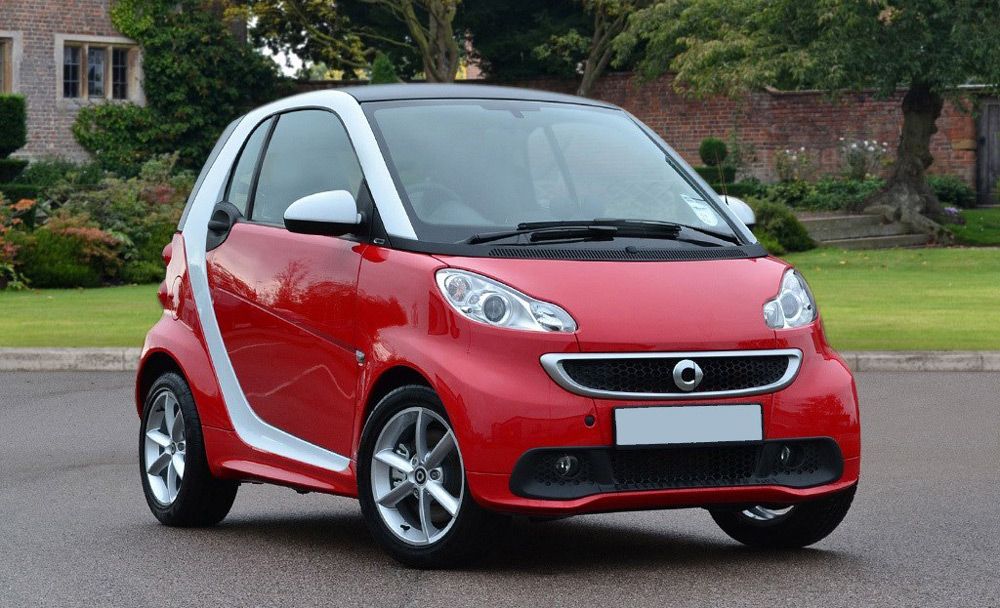
The diesel power unit has a volume of 0.8 liters and develops a power equal to 54 horsepower. This is enough to accelerate to 135 km / h, but it takes more than 16 seconds to reach “hundreds” - the dynamics of the car is comparable to the ancient VAZ “penny”. It is also impossible to call a vehicle roomy and comfortable - two people of average height can fit inside, and there will no longer be room for luggage. Previously, the administration of Mercedes planned that compact machines Smart will completely change the European auto industry, as well as transform large cities, but the miracle did not happen - few were ready to give up good dynamics and comfort.
Availability
The best cars have always been distinguished by considerable cost - this concerned the most powerful or economical modifications. However, not all diesel cars require high costs for their acquisition - some are so cheap that they have a chance to become "popular" in most countries of the world. Moreover, the development of modern technology makes it possible to make them even cheaper every year, without detracting from reliability, comfort and economy.
This French-Romanian car has become a true successor to the Ford T, once considered the most affordable for millions of Americans. Of course, most people in Russia prefer Renault gasoline modifications, but in Europe it is the diesel sedan that is most in demand. With a volume of 1.5 liters, the diesel power unit develops 85 horsepower, which can be considered a good indicator for a budget car. Even a long drive in the city does not create extra costs for Logan owners, since fuel costs are kept at the level of 5-6 liters / 100 km.
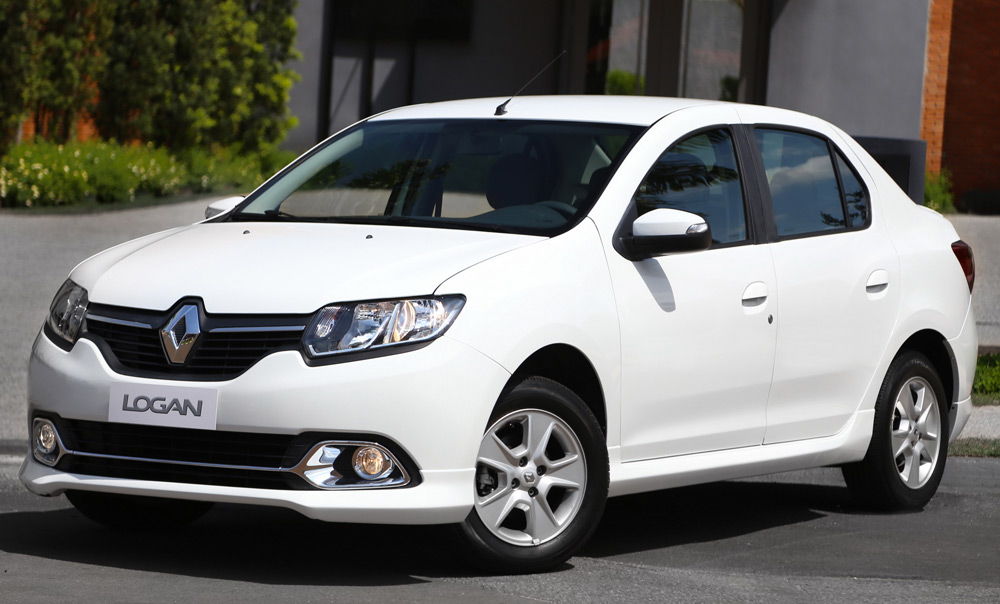
The motor is installed on other cars created on the Logan chassis, for example, compact crossover Duster or youth Sandero. However, its best advertisement may be the massive use of diesel Renault car Moscow taxi drivers. According to them, the reliability of the power unit is worthy of the highest praise. When refueling good quality it is able to serve without overhaul for about 200-250 thousand kilometers.
The car of the American brand, manufactured in Germany, boasts excellent interior equipment. For a small amount, the motorist is offered four airbags, a modern multimedia system, as well as high-quality upholstery. Chassis diesel car has ideal settings that allow you to actively move around the highways full of turns and uneven city streets.
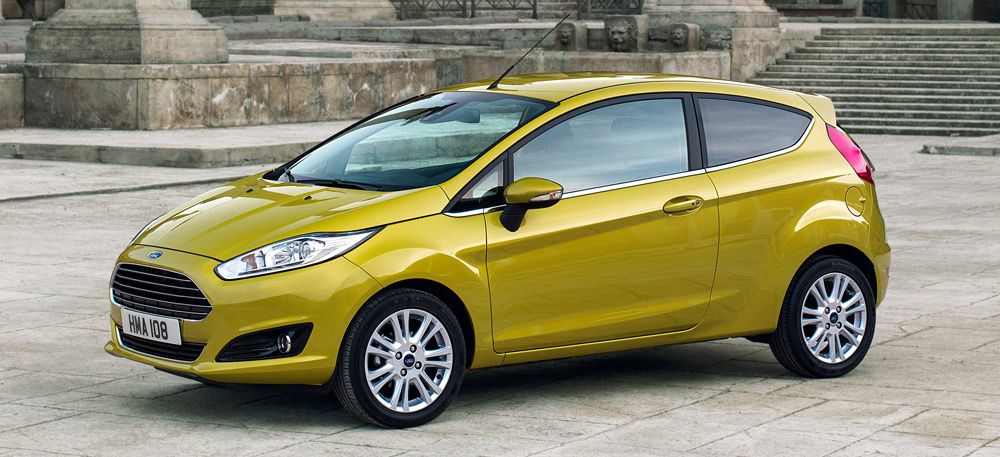
However, there is almost no choice - a 1.5 diesel engine can only be combined with a five-speed manual gearbox. Its power is also not phenomenal, since 75 horsepower is clearly not enough for fast driving on difficult routes. At compact hatchback other values - it requires only 4.4 liters of fuel for 100 km of travel. It seems that in terms of the ratio of acquisition costs and the cost of subsequent operation Ford Fiesta can be called the most profitable diesel car on the Russian market.
Diesel fashion
It seems that the general distribution of diesel engines is becoming really fashionable. Most manufacturers offer such machines to their customers, positioning them as the most profitable in operation, as well as reliable and easy to operate. In addition, diesel vehicles often outperform their gasoline counterparts in terms of dynamic performance and ease of traction control. It would seem that diesel engines will soon flood the planet and provide mankind with economical means of transportation. However, French scientists relatively recently found that diesel exhaust contains substances that cause serious illness in humans - so the fate of such motors is still in question.
The best prices and conditions for the purchase of new cars
Credit 4.5% / Installment / Trade-in / 95% approval / Gifts in the salonMas Motors
Many people often ask themselves, why is a diesel car more economical if diesel fuel costs almost the same as 95th gasoline? We answer: the difference, first of all, in the expense. A diesel engine with a comparable volume consumes almost half as much fuel. That is, on one tank, a diesel car can drive almost twice as far as the same gasoline car. In addition, modern diesel cars are almost no different from gasoline ones in terms of the sound of operation, and even surpass them in performance.
But there is also negative sides: diesel cars are initially more expensive than their gasoline counterparts. And besides, they have a reduced service life and, as a rule, a higher cost of maintenance. Yes, and high-quality diesel fuel can not be found everywhere. So choose economical diesel modification you need a calculator in hand - in most cases, such a car pays for itself only with high mileage over a sufficiently long period of time.
Peugeot 408
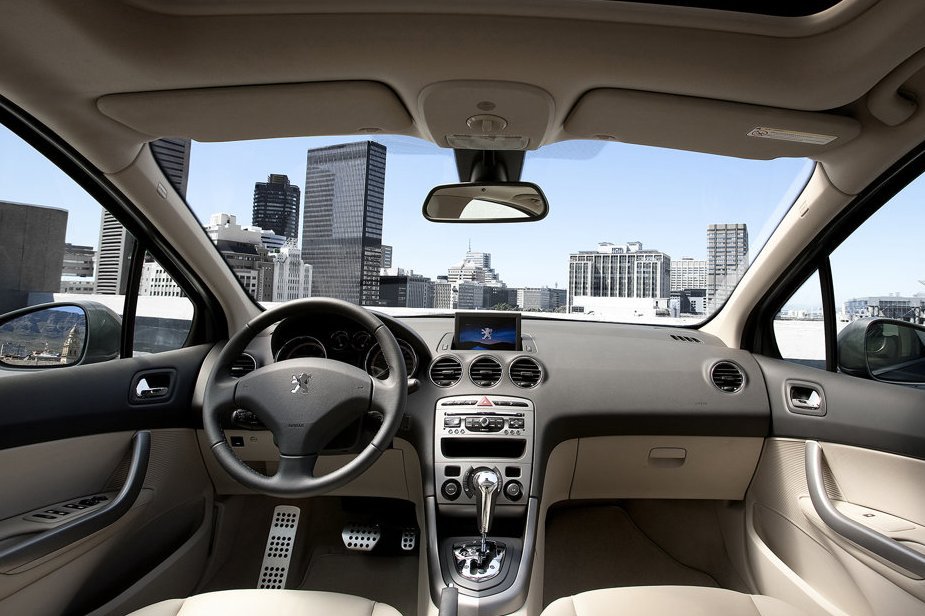
Engine: diesel 1.6 (112 hp)
Checkpoint: mechanical 5-speed
Acceleration to 100 km/h: 11 seconds
Claimed city consumption: 6.2 liters per 100 km
Price: from 632,000 rubles
New Russian market and concurrently the most affordable passenger diesel car on the Russian market after Renault Duster. The car is distinguished by a very spacious interior and trunk, as well as well-thought-out adaptation for operation in Russian conditions. In addition, the manufacturer promises low cost service. The only drawback is only manual transmission. But in general, in terms of characteristics, it is a potential bestseller, but buyers are still wary of it.
Citroen C4
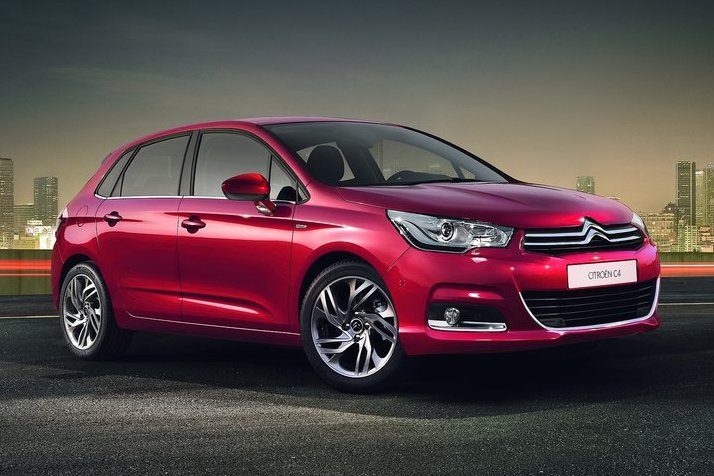

Engine: diesel 1.6 (112 hp)
Checkpoint:
Acceleration to 100 km/h: 11.2 seconds
Claimed city consumption: 4.4 liters per 100 km
Price: from 792 900 rubles
Another representative of the PSA concern is equipped with the same as the 408 sedan, a 1.6 diesel engine. Stylish appearance, comfortable and high-quality interior, complemented good level equipment must justify a sufficiently high starting cost. In addition, potential buyers have at their disposal a robotic transmission, although not the most modern. And the fuel consumption declared by the manufacturer seems very optimistic.
Opel Meriva
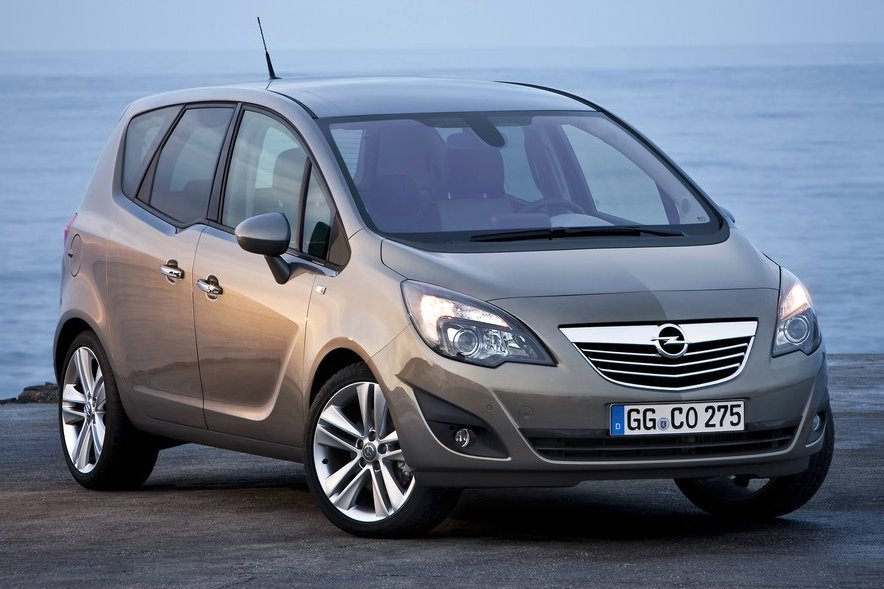
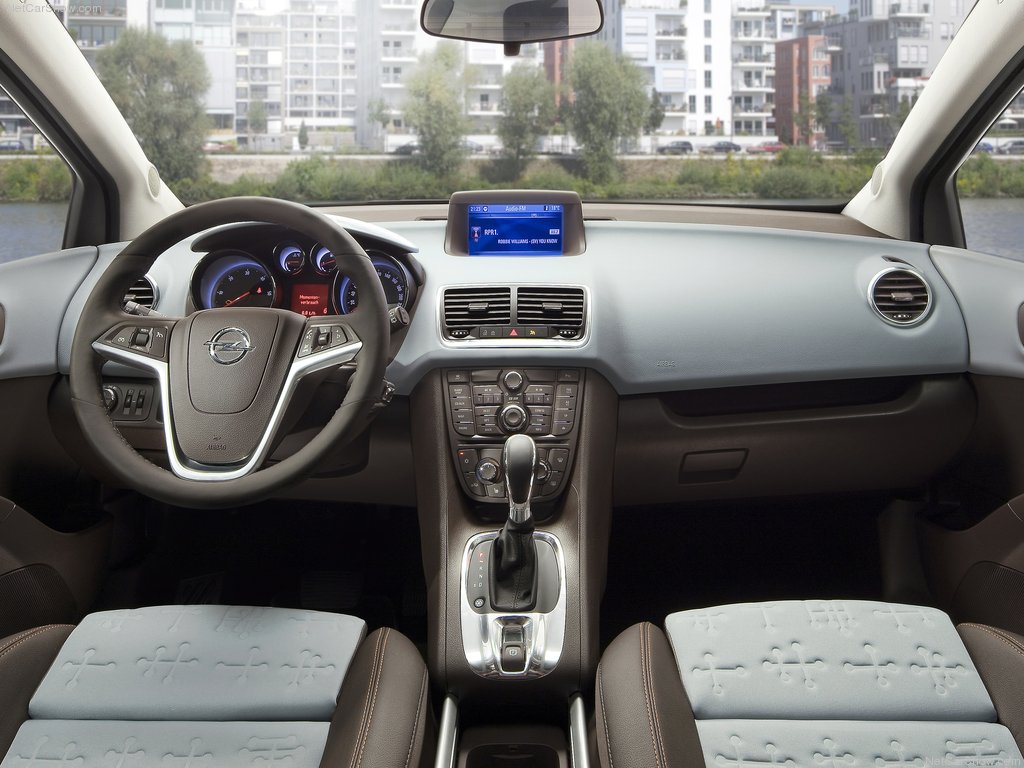
Engine: diesel 1.7 (110 and 100 hp)
Checkpoint:
Acceleration to 100 km/h: 11.8 seconds
Claimed city consumption: 6.4 liters per 100 km
Price: from 777 500 rubles
The most affordable compact van on the Russian market is distinguished, first of all, by opening against the move rear doors. Meriva also has an extremely functional transforming salon. In addition, a cozy interior with a lot of inexpensive additional options allow you to create a complete set "for yourself." A full-fledged six-speed "automatic" greatly simplifies the movement in the metropolis.
Kia Soul
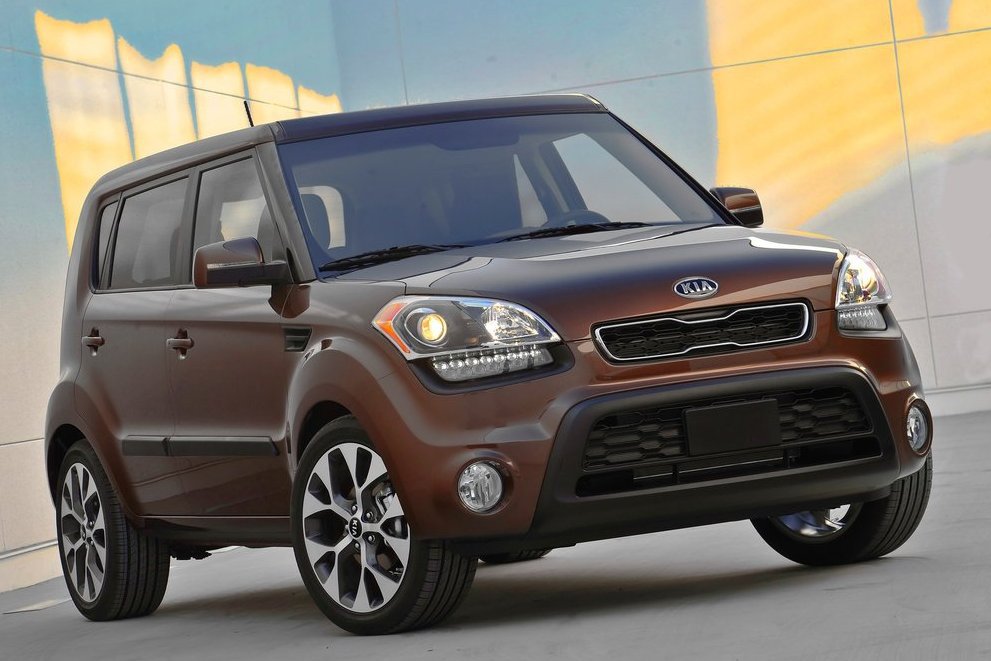
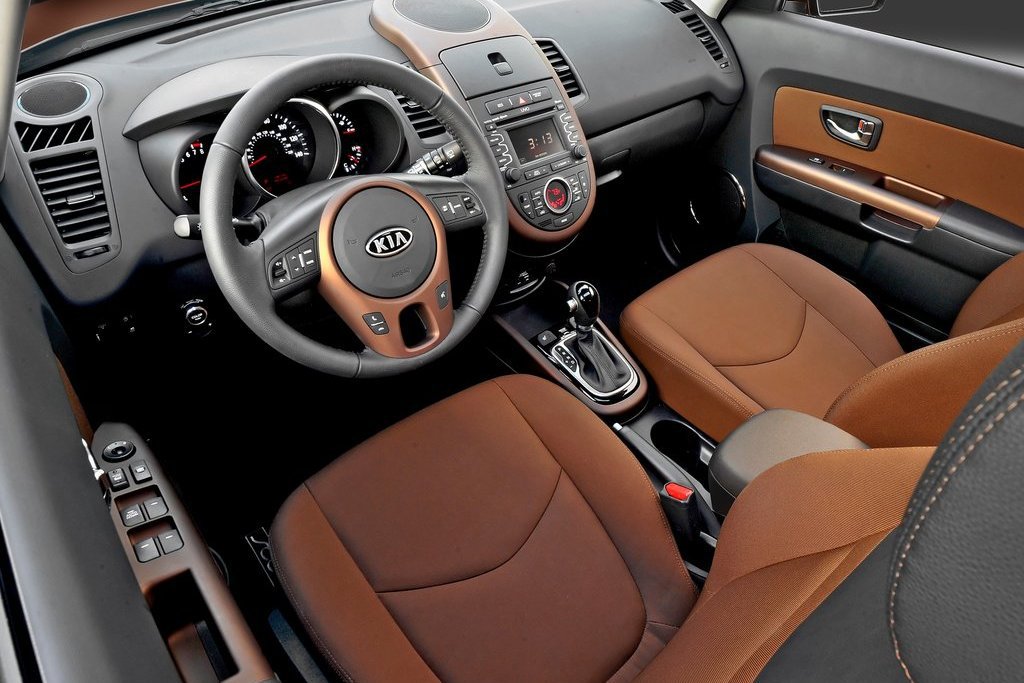
Engine: diesel 1.6 (128 hp)
Checkpoint: automatic 6-speed
Acceleration to 100 km/h: 11.7 seconds
Claimed city consumption: 7.4 liters per 100 km
Price: from 799 000 rubles
The elegant five-door Korean hatchback tries its best to look like a crossover, which it really is not. but high profile body allows you to comfortably get into a fairly comfortable and well-equipped interior. High-tech diesel has very worthy characteristics at the level of the best European manufacturers. The only drawback is not the most spacious and comfortable trunk.
Volkswagen Golf
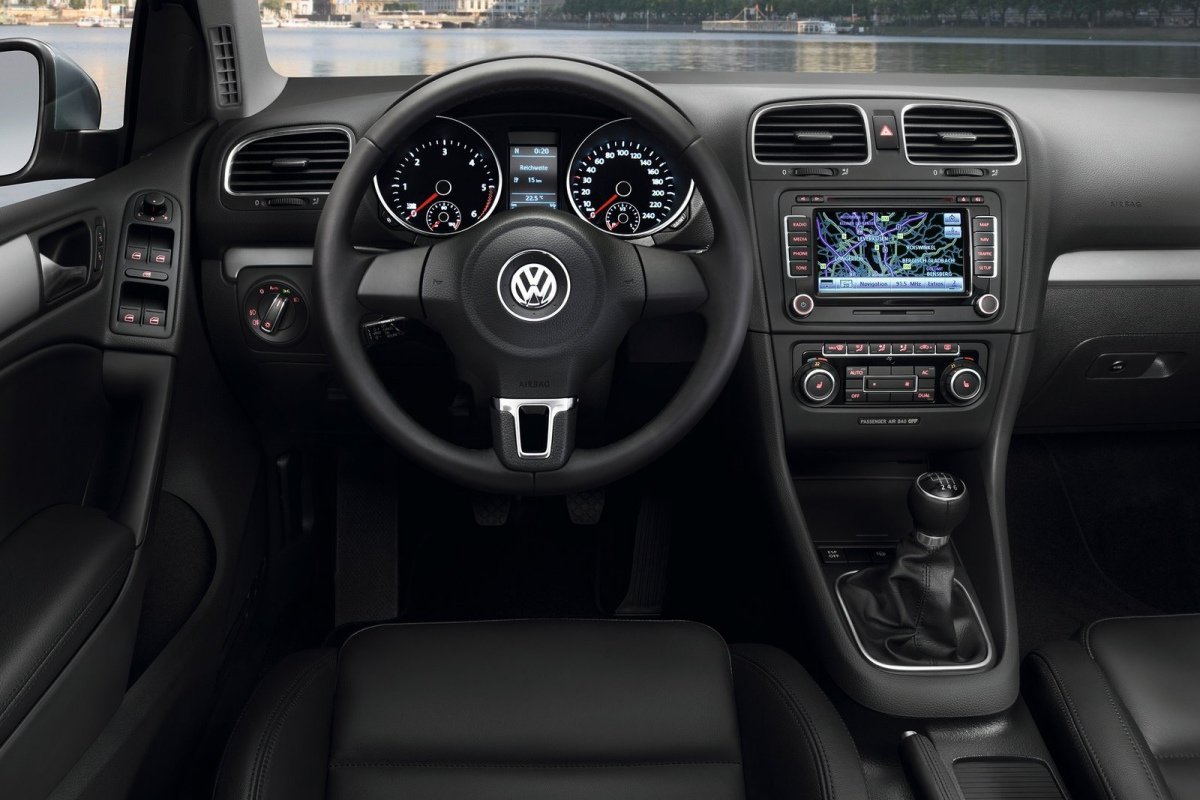
Engine: diesel 2.0 (110 hp)
Checkpoint: mechanical 5-speed
Acceleration to 100 km/h: 10.7 seconds
Claimed city consumption: 6.4 liters per 100 km
Price: from 815 000 rubles
Recognized standard of its class in many respects. The car has already changed generation, but so far you can still buy the current model in car dealerships. The two-liter diesel engine does not have much power, but this does not prevent it from being quite dynamic and economical. The disadvantages include the lack automatic transmission and the high cost of additional options.
Ford Focus
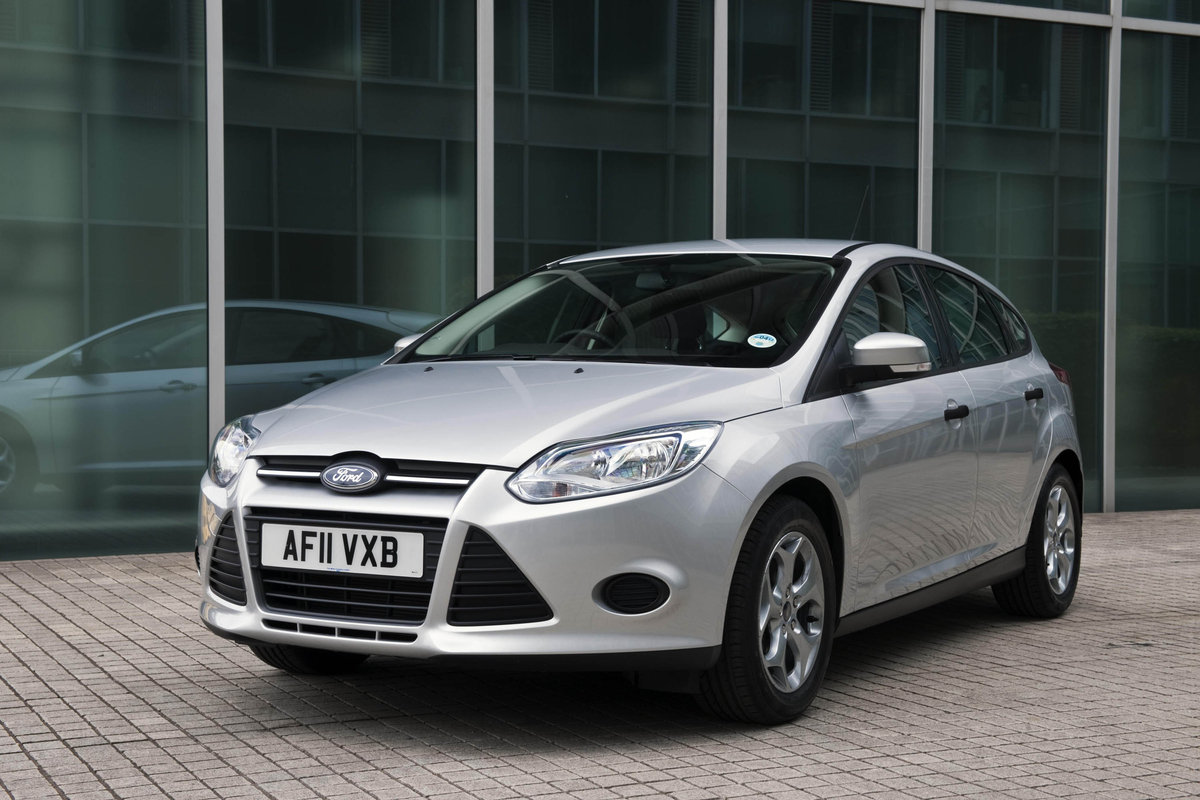
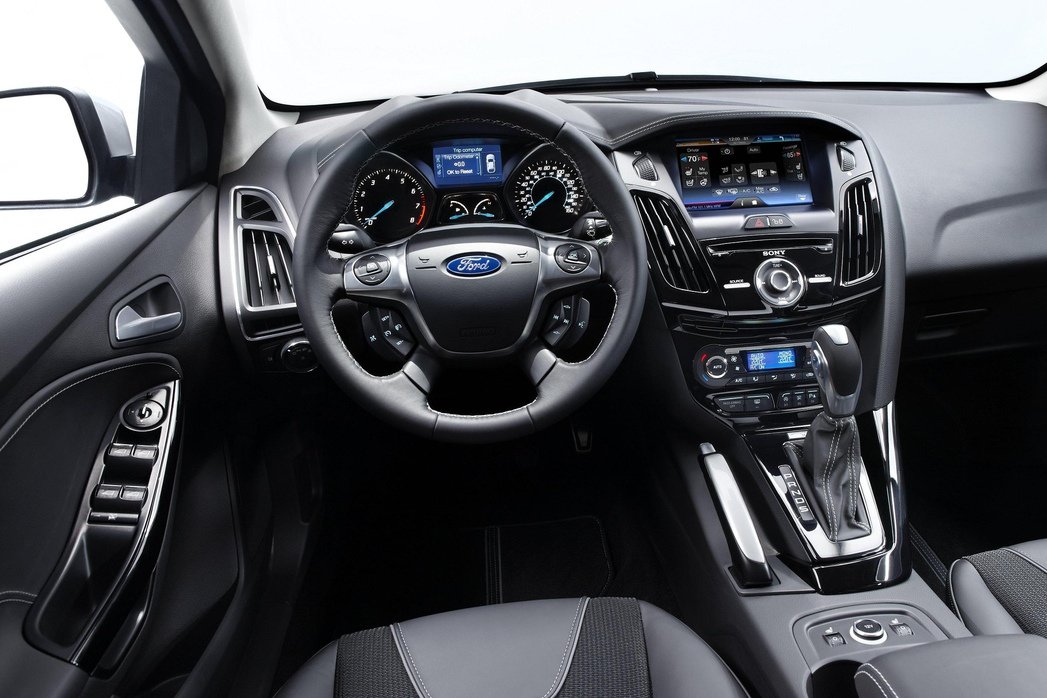
Engine: diesel 2.0 (140 hp)
Checkpoint:
Acceleration to 100 km/h: 9.5 seconds
Claimed city consumption: 6.8 liters per 100 km
Price: from 847,000 rubles
With a diesel engine, it sells worse than other modifications. The reason is the high price of the solar version. But with this engine, the Focus really reveals the talent of a perfectly tuned chassis. In general, a two-liter engine makes Ford Focus the most dynamic diesel car for the money. In addition, on the side of the car there is a choice of three body styles: hatchback, sedan and station wagon.
Hyundai i30 Wagon

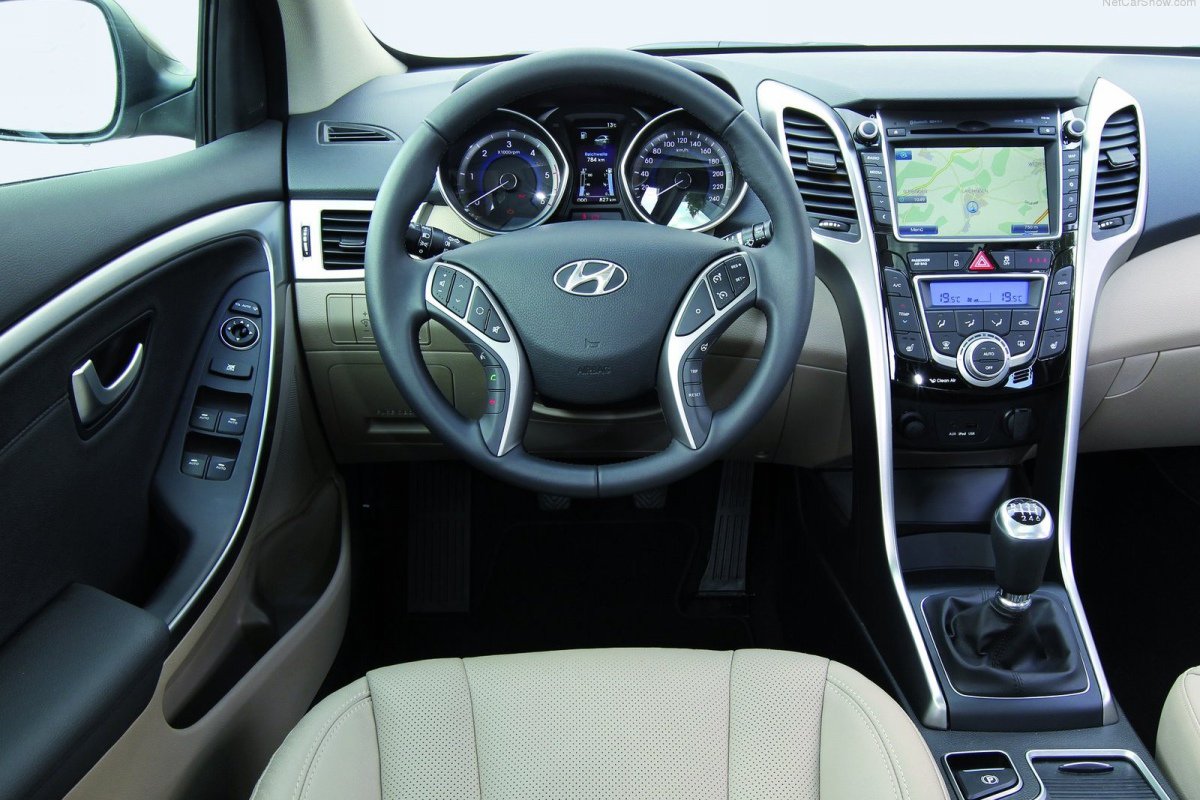
Engine: diesel 1.6 (128 hp)
Checkpoint: automatic 6-speed
Acceleration to 100 km/h: 11.7 seconds
Claimed city consumption: 7.9 liters per 100 km
Price: from 899 000 rubles
Another novelty of the domestic market. The Korean manufacturer decided to equip the i30 with an economical diesel engine exclusively in a practical station wagon body, which is quite logical. The car features a spacious interior with a large 530-liter trunk. However, the average level of equipment against the background of a fairly high cost still scares off potential buyers.
Peugeot 3008
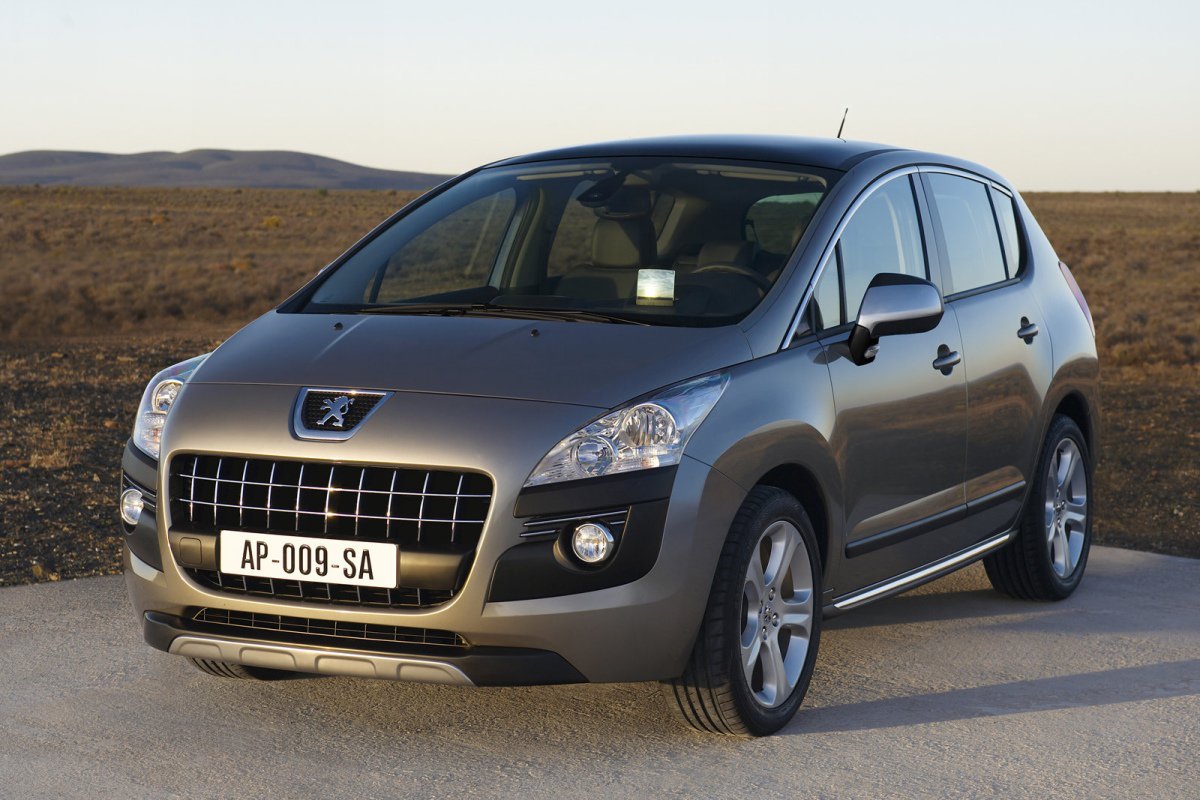

Engine: diesel 1.6 (112 hp)
Checkpoint: robotic 6-speed
Acceleration to 100 km/h: 12.6 seconds
Claimed city consumption: 5.2 liters per 100 km
Price: from 947,000 rubles
Positioned as a crossover car, it is actually a convenient compact van. On the side of the 3008 there is a spacious interior, a very comfortable and roomy trunk, as well as an enlarged ground clearance. In addition, the handling, reckless for a family car, even allows you to misbehave a little on the road. As a result - a fairly stiff suspension. Yes, and the same as on the C4, a simple "robot" does not add comfort to the car.
Skoda Octavia Combi
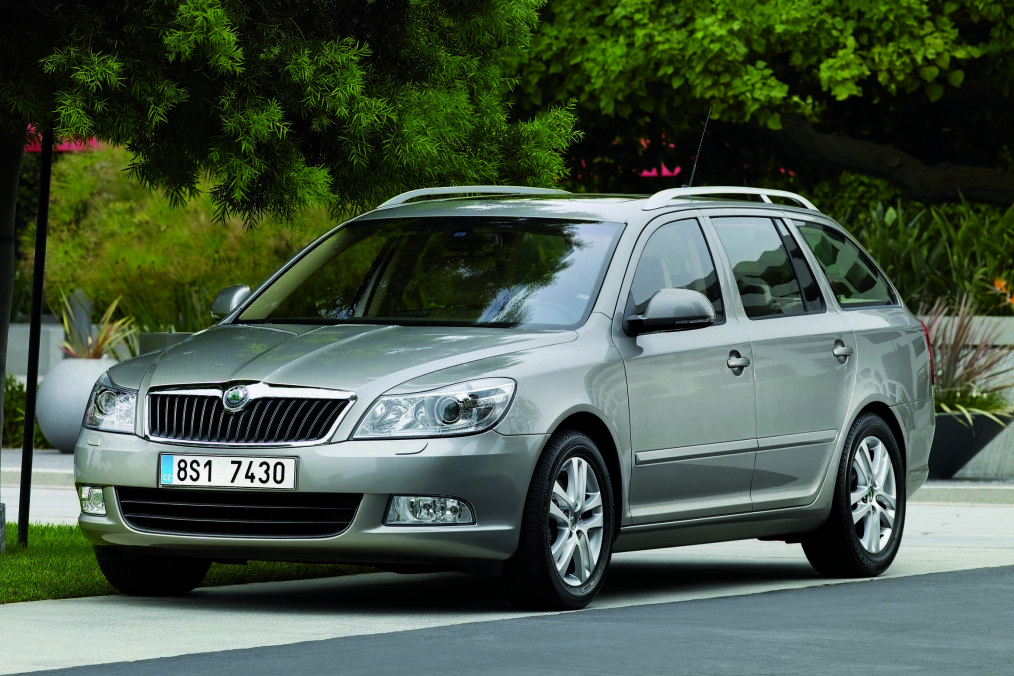

Engine: diesel 2.0 (140 hp)
Checkpoint: robotic preselective 6-speed
Acceleration to 100 km/h: 8.3 seconds
Claimed city consumption: 7.2 liters per 100 km
Price: from 999 000 rubles
The main advantage of this car is the most spacious and well-thought-out interior. The wagon body with a 580-liter trunk turns the Octavia almost into a passenger van. A two-liter diesel gives the car a very decent dynamics. The machine is offered exclusively preselective DSG box, which serves as an excellent pair for a technologically advanced engine. The only pity is that you will have to pay a lot for all this pleasure.
Opel Insignia

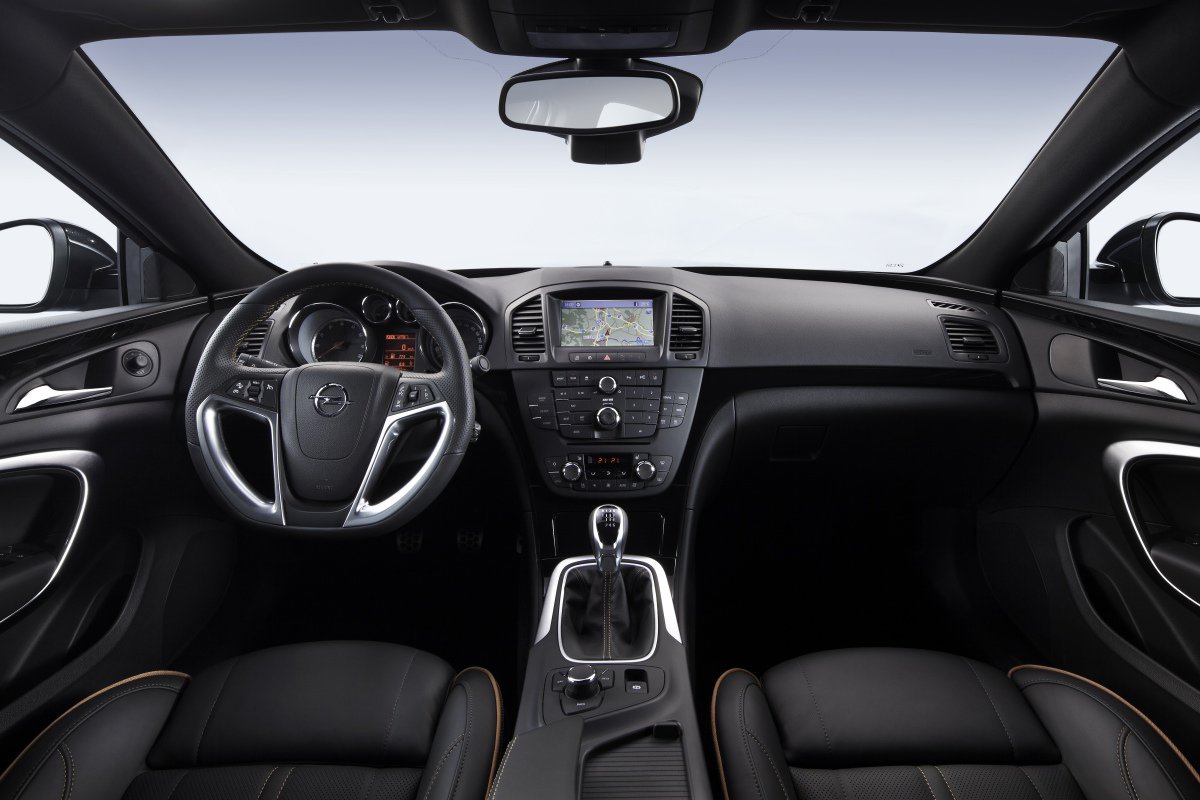
Engine: diesel 2.0 (160 hp)
Checkpoint: manual and automatic 6-speed
Acceleration to 100 km/h: 9.6 seconds
Claimed city consumption: 6.9 liters per 100 km
Price: from 1,018,000 rubles
The most affordable D-class diesel car attracts attention with its stylish design, excellent driving performance and a variety of body modifications. I am pleased with the good basic equipment and the affordability of most options. For example, the Germans ask for only 25,000 rubles for a regular navigation system.
Volkswagen Touran
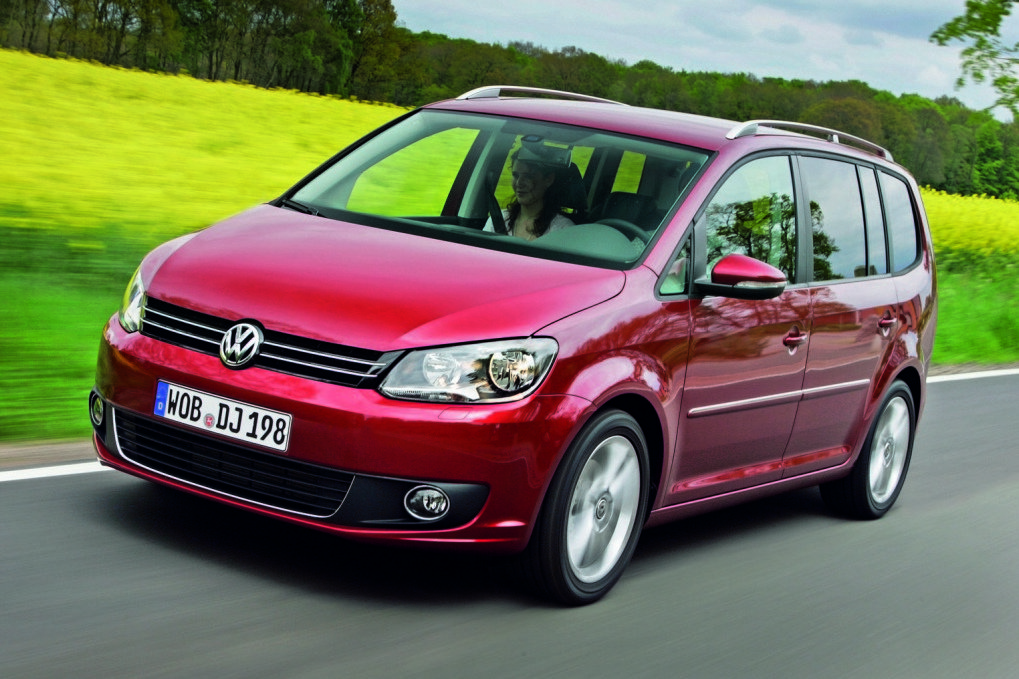

Engine: diesel 2.0 (110 hp)
Checkpoint: mechanical and robotic preselective 6-speed
Acceleration to 100 km/h: 12.1 seconds
Claimed city consumption: 6.8 liters per 100 km
Price: from 1,020,000 rubles
The German compact van is equipped with the same engine as the Golf. For the larger model only, two transmissions are available. The main advantage of the car is that the buyer can choose between a five-seat modification with a huge trunk, or take the place of the latter with two additional seats. In any case, the ergonomically adjusted interior will remain comfortable for all passengers.
Ford Mondeo

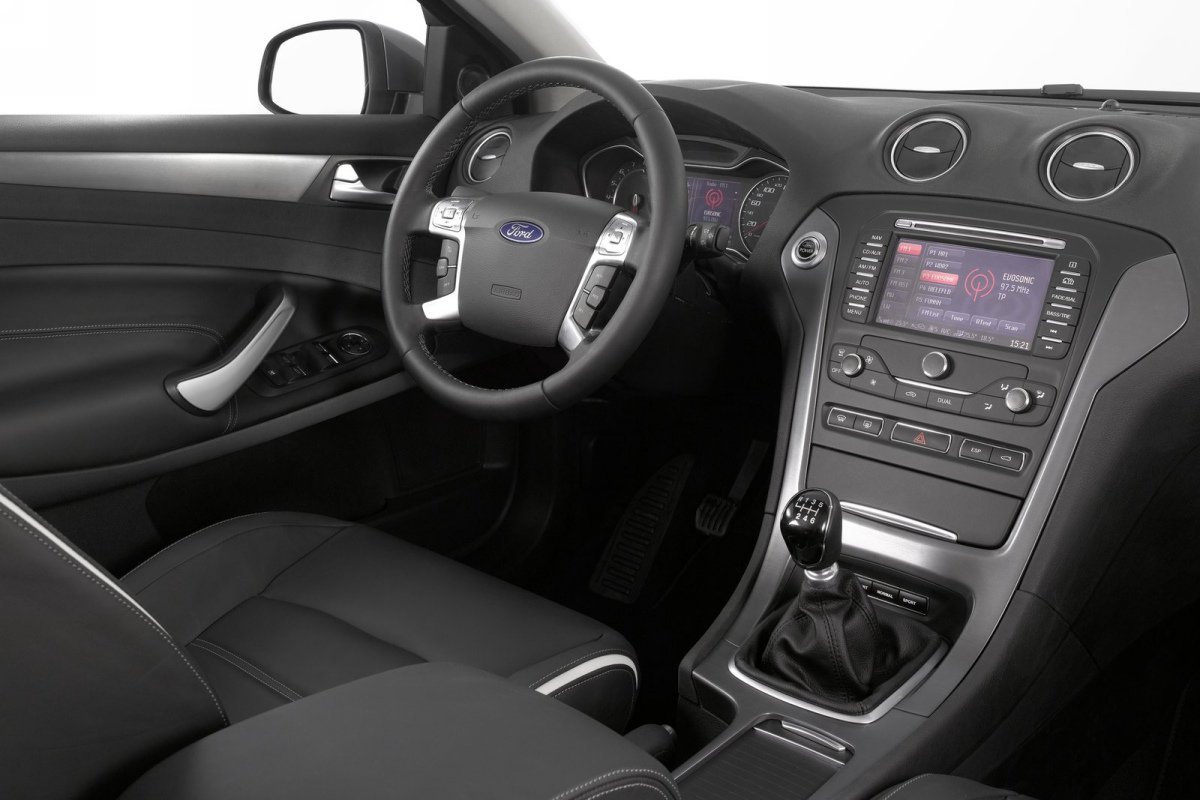
Engine: diesel 2.0 (140 hp)
Checkpoint: automatic 6-speed
Acceleration to 100 km/h: 10.2 seconds
Claimed city consumption: 8.4 liters per 100 km
Price: from 1,080,500 rubles
One of the most popular cars his class in Russia. Mondeo captivates, first of all, with an excellent balance consumer qualities. Spacious interior with a large boot, an optimal level of equipment, good driving characteristics without sacrificing comfort and three body styles to choose from, make the car a good offer in its segment. Many may note not the most modern design, but with the advent of a new generation, this shortcoming will be eliminated.
Peugeot 508
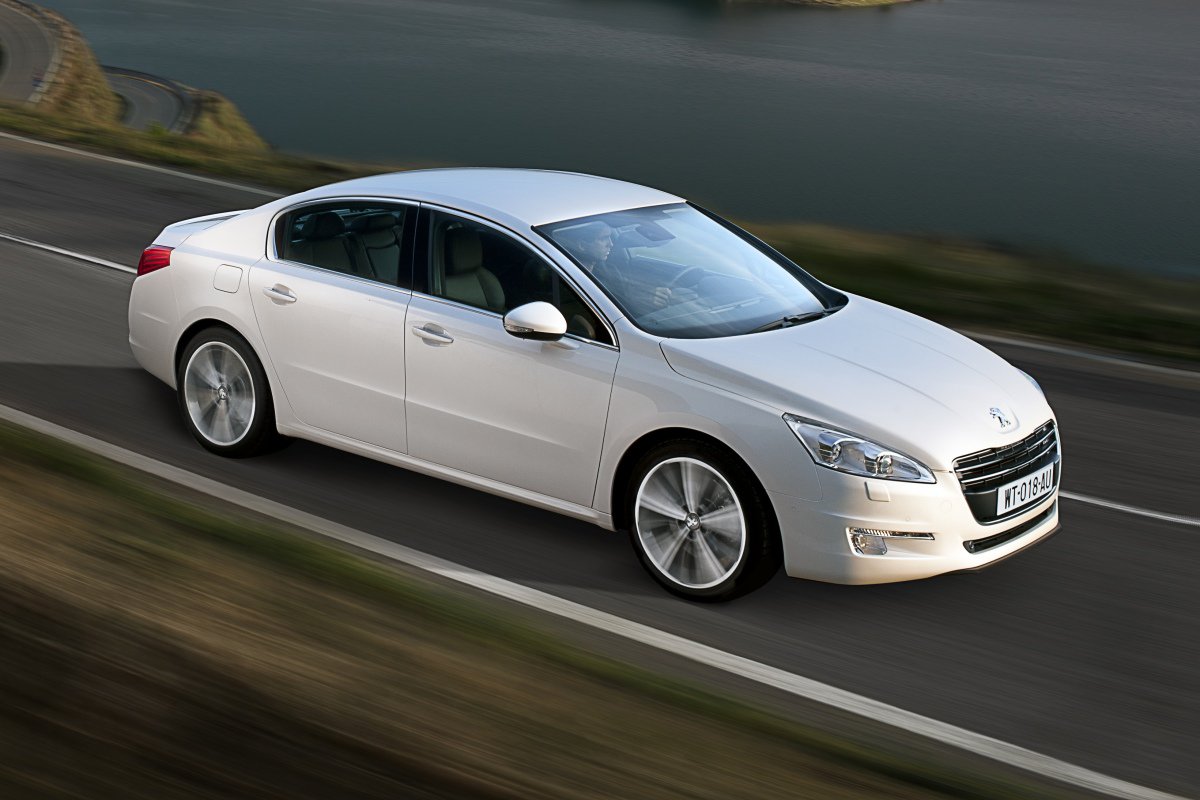

Engine: diesel 2.0 (136 hp) and 2.2 (204 hp)
Checkpoint: automatic 6-speed
Acceleration to 100 km/h: 10.1 (8.2) seconds
Claimed city consumption: 6.8 (8.0) liters per 100 km
Price: from 1,094,000 rubles
Built according to German patterns, it lost a significant part of the French charm, but gained more pragmatism and functionality. It is interesting that the power line, even for Russia, is made with an emphasis on diesel engines, in which the French know a lot. The owner will be especially pleased with the top-end 2.2-liter engine with excellent performance.
Citroen C5
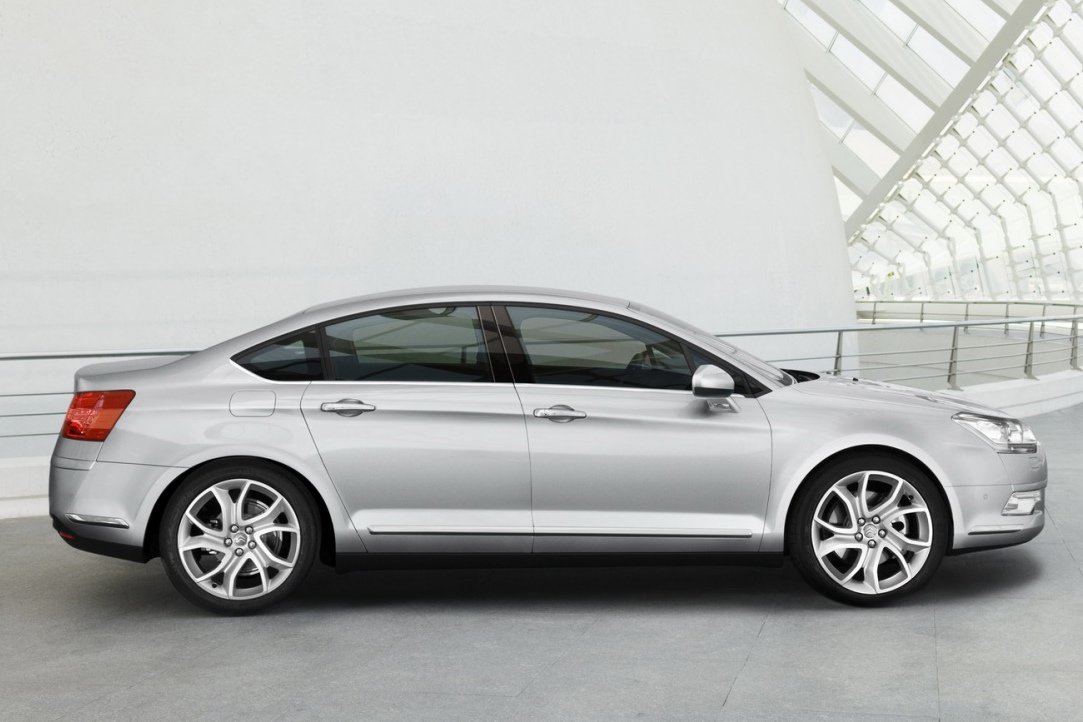
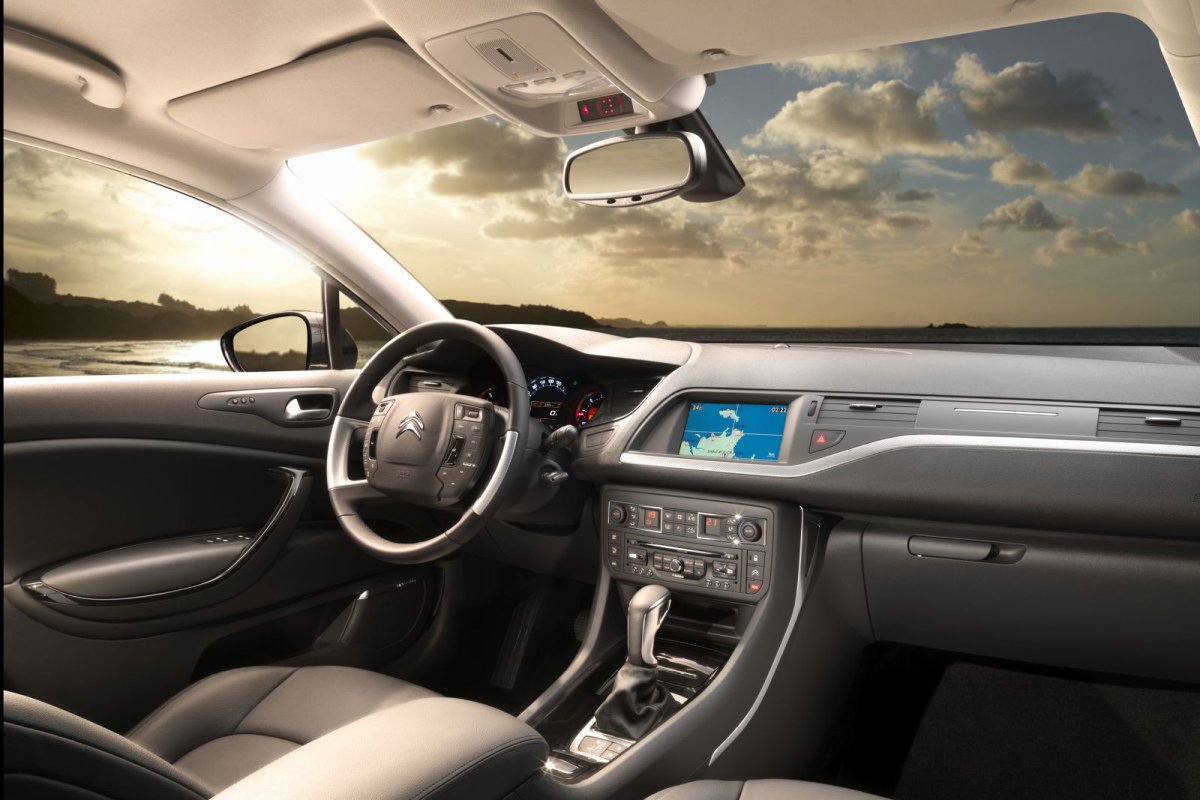
Engine: diesel 2.0 (136 hp), 2.2 (204 hp), 3.0 (240 hp)
Checkpoint: automatic 6-speed
Acceleration to 100 km/h: 11.8 (8.3 and 7.9) seconds
Claimed city consumption: 6.9 (8.0 and 10.2) liters per 100 km
Price: from 1,104,000 rubles
But the "co-platform" Peugeot 508 remained faithful not only to the non-trivial design, but also to the proprietary air suspension, with which the C5 is one of the most comfortable cars class. yes and choice diesel units it has the widest, including a 3.0-liter diesel engine. For pragmatic connoisseurs of comfort and dynamics, there is also a station wagon.
bmw 120d

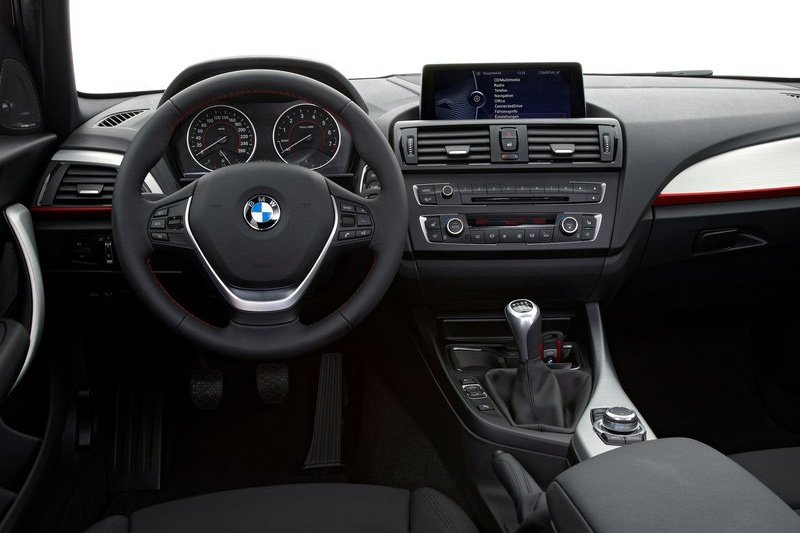
Engine: diesel 2.0 (184 hp)
Checkpoint: manual 6-speed and automatic 8-speed
Acceleration to 100 km/h: 7.2 seconds
Claimed city consumption: 5.7 liters per 100 km
Price: from 1 120 000 rubles
The most affordable diesel car in the premium segment. Powerful engine and refined handling endow the car with a sporty character. True, a trained driver who can cope with the rear-wheel drive habits of a compact hatchback will be able to fully appreciate it. The BMW 120d is especially good with an optional sports package that includes a retuned suspension, steering and brakes.
Skoda Superb
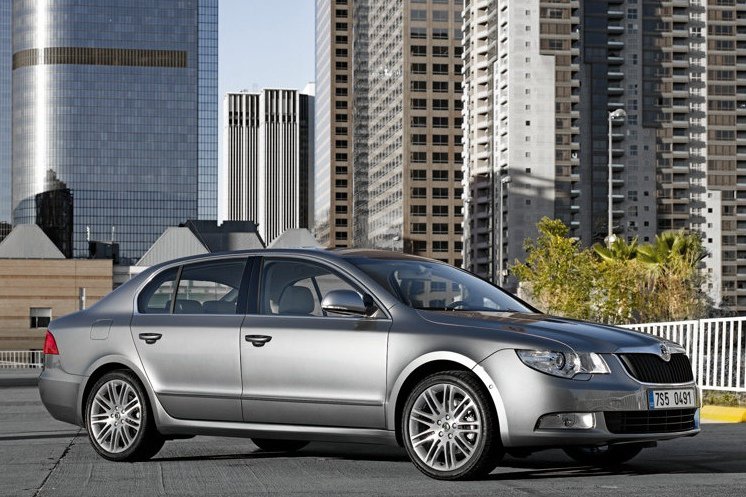
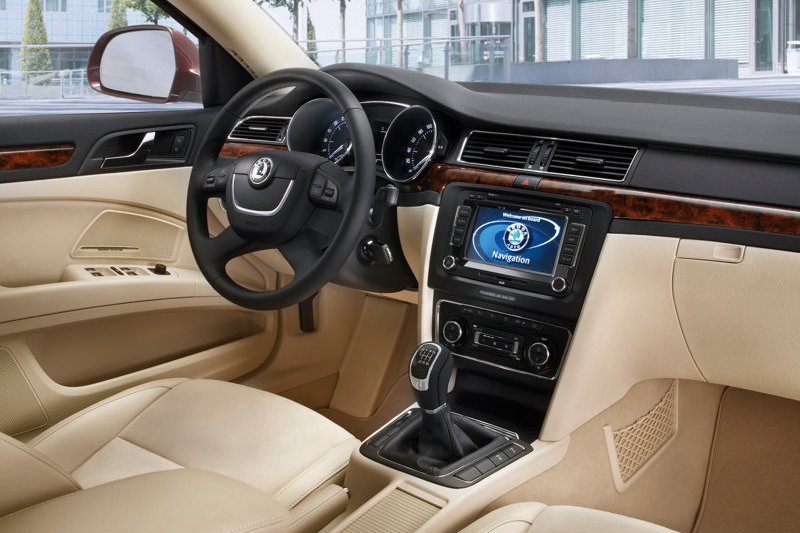
Engine: diesel 2.0 (140 hp)
Checkpoint: robotic preselective 6-speed
Acceleration to 100 km/h: 10.2 seconds
Claimed city consumption: 7.5 liters per 100 km
Price: from 1,164,000 rubles
Flagship of the Czech model range has an unprecedented supply of free space for rear passengers, as well as unique body capable of converting from a sedan to a hatchback. Familiar from the Volkswagen power line, the engine gives big car decent dynamics and good economy. In addition, the diesel Superb is the most affordable car E-class, which can be chosen in the station wagon.
Citroen DS5

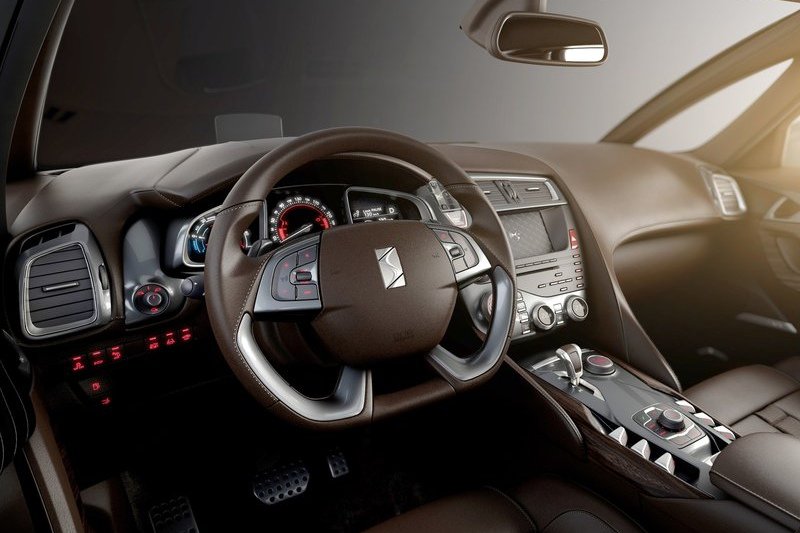
Engine: diesel 2.0 (160 hp)
Checkpoint: automatic 6-speed
Acceleration to 100 km/h: 10.4 seconds
Claimed city consumption: 7.9 liters per 100 km
Price: from 1,334,000 rubles
One of the most unusual cars Russian market, attracting attention, first of all, with its unusual appearance. The number of design delights both in the exterior and in the interior is overwhelming. However, this does not prevent the DS5 from being a comfortable machine in everyday use. The only pity is that due to the design features of the stylish model, the branded Citroen air suspension did not get.
Audi A4

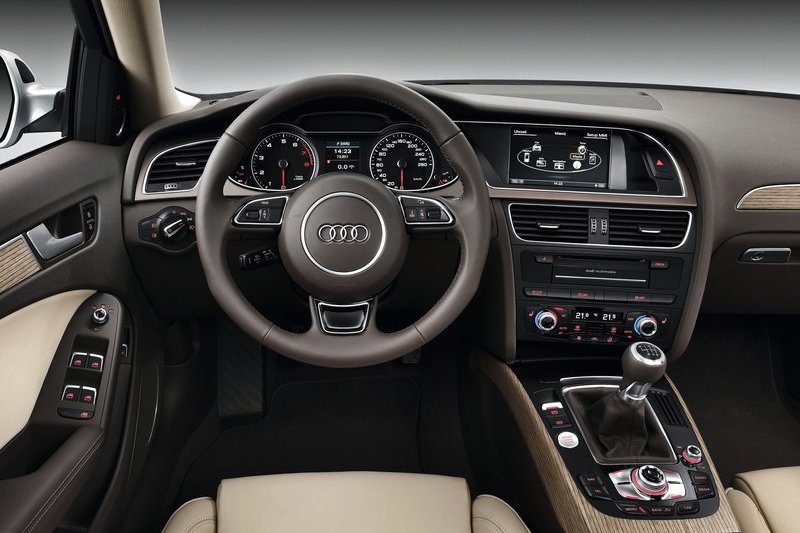
Engine: diesel 2.0 (143 hp) and 3.0 (245 hp)
Checkpoint: variator and robotic preselective 7-speed
Acceleration to 100 km/h: 9.1 (5.9) seconds
Claimed city consumption: 5.7 (6.8) liters per 100 km
Price: from 1 430 000 rubles
Another representative of luxury cars that can be purchased with an economical diesel engine for reasonable money. True, the smooth variator that comes with the 2.0-liter engine noticeably hides the dynamics of acceleration. Yes, and the equipment corresponding to the premium status will have to be added to the list of expensive options. But in the range there is also a powerful 245-horsepower diesel engine, but the price of such an A4 is already approaching two million rubles.
Volkswagen Passat/ Passat CC

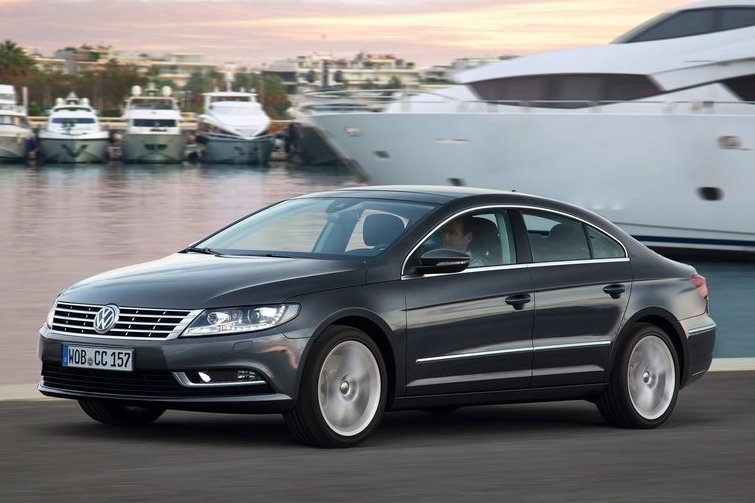
Engine: diesel 2.0 (170 hp)
checkpoint: robotic preselective 6-speed
Acceleration to 100 km/h: 8.6 seconds
Claimed city consumption: 6.6 liters per 100 km
Price: from 1,454,000 rubles / 1,434,000 rubles
Coupe-like version of the usual Passat with a diesel engine under the hood was surprisingly slightly cheaper than its more traditional counterpart. The reason is a more modest configuration. The traditionally ergonomic interior due to the greater headroom is more comfortable in a regular Passat. For those who value style more than practicality, the CC modification is addressed. But the speed characteristics and efficiency indicators of the two machines are almost identical.
bmw 320d
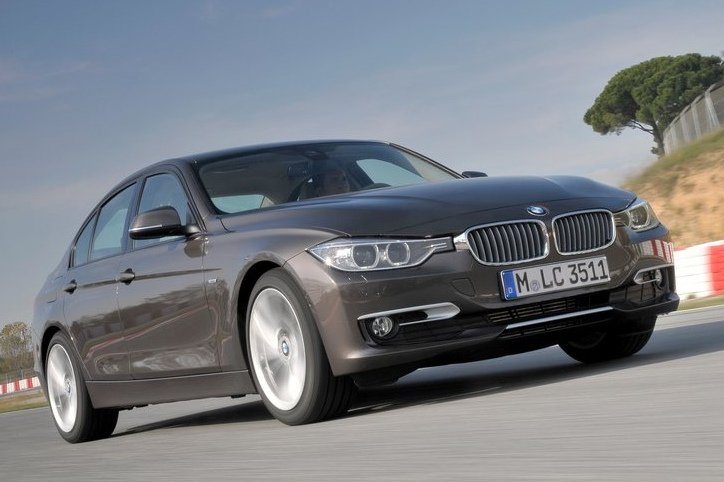

Engine: diesel 2.0 (184 hp)
Checkpoint: automatic 8-speed
Acceleration to 100 km/h: 7.6 seconds
Claimed city consumption: 5.4 liters per 100 km
Price: from 1,475,000 rubles
Recently changed generation BMW 3-series in new generation focused on comfort and safety. The car has not lost its verified habits on the road, but the sporty spirit of the Bavarian brand is no longer felt so clearly in this car. In any case, the diesel "Treshka" according to dynamic characteristics overtakes all competitors with comparable diesel engine power.
Despite the general low demand in Russia for cars with diesel engines, they are widely represented on the domestic market. Even a car you can choose for every taste and budget. And the one planned by the government can significantly spur buyers to the choice of diesel modifications.
There are legends of any age about "millionaire motors" that are able to overcome huge distances without significant breakdowns, and even more so - complete failure. Some believe that such stories are highly exaggerated, and the average run to overhaul should be 150-250 thousand kilometers. However, in reality, the most reliable are capable of more with proper care. Of course, if you do not pay due attention to the motor, it will quickly force you to do repairs, despite all the perfection of the design. Therefore, the developments of brilliant engineers must be treated with respect - and they will answer you with exceptional reliability and durability.
The engine is the heart of the car
Diesel engines
Any diesel engines are always more than gasoline engines - this is due to the peculiarities of their design, which involves working on low revs, greater fuel supply stability, reduced combustion temperature. However, some motors have a relatively short service life - this is especially true for cars of recent years of production, on which diesel engines have a high degree of forcing and a huge amount of electronic equipment. Nevertheless, classic powertrains are always ready to defend the honor of diesels, and prove their excellent durability.
Unrivaled Mercedes
If consumers have a question about which diesel engine is the most reliable, most experts can answer that you should definitely pay close attention to the products of German engineers - and more specifically,. The most durable is considered to be the in-line five-cylinder engine of the OM602 series, which is equipped with only two gas distribution valves per cylinder and a primitive mechanical fuel pump, invented several decades ago. These power units were produced in the time period 1985–2002. the motor corresponds to the applied technologies - it varied between 90-130 horsepower, which did not allow cars with such engines to be considered dynamic.

It is not for nothing that they quickly disappeared from under the hoods of the W124 and W201 passenger cars, firmly settling in the utilitarian versions of the G-class SUV, as well as in Sprinter commercial vans. The owners of these Vehicle I liked the incredible reliability, which was combined with huge traction and the ability to carry the heaviest loads. With normal care, such diesel engines traveled at least 500 thousand kilometers before a major overhaul. On some cars, which were operated in conditions close to ideal, the figure reached two million kilometers without serious intervention by repairmen. Of course, even such "perpetual" motors require constant attention - you should pay attention to attachments and fuel supply equipment.
Bavarian geniuses
BMW engineers, who have long deserved monuments on most racetracks, were able to prove that the most reliable diesel engine does not have to be slow and suitable for installation exclusively in utility cars. The M57 series engines had a volume of 3 liters and an in-line six-cylinder layout. The years of production of such automotive components fell on 1998–2008. The power was quite high - it varied between 201-286 horsepower, which allowed the cars to look like real sports cars against the background of other diesel competitors.
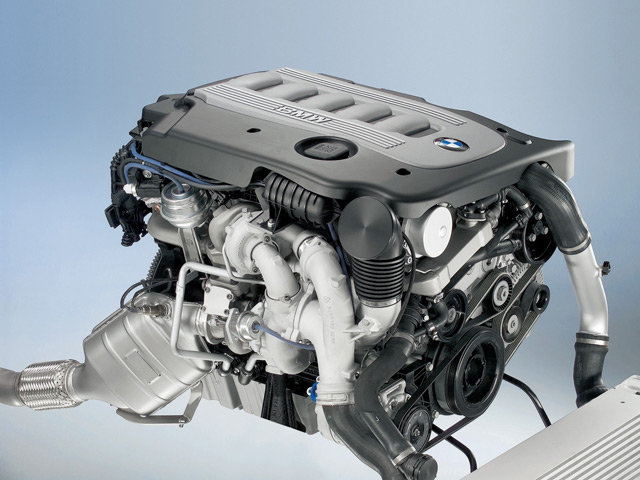
The engines were installed on various - from the first to the seventh series, which ensured their real popularity and wide distribution. In addition, used a similar power unit and SUVs range rover, for which at one time it was the only alternative to gasoline engines, which had a very high fuel consumption. Causing only minor problems, the M57 series engines covered 400-500 thousand kilometers without any problems before overhaul, while individual drivers reported more than 1 million kilometers without problems. Increased attention should be paid fuel system diesel engines, which is afraid of low-quality fuel - in addition, it is recommended to follow, which is quickly consumed by waste.
Japanese classic
In addition, a reliable diesel engine was produced and - moreover, this power unit is highly valued domestic motorists, very reluctant to part with machines that were equipped with similar equipment. This is the 1HZ engine, which had a working volume of 4.2 liters with an in-line arrangement of six cylinders. The technique is very similar to the one used by Mercedes - two valves for each cylinder, a primitive fuel pump, a simplified design of the main components. An interesting point is the camshaft drive from the injection pump - this can significantly increase the reliability of the belt, although it creates an additional load on the gears. The power of this engine, produced in 1990-1998, is 129 horsepower.

The motor was installed on, as well as on the Coaster compact bus - for such vehicles, its reliability and high-torque power were indispensable. The average mileage before the overhaul was 650-750 thousand kilometers, which was the reason for the love of Russian motorists for Japanese diesel engines. Moreover, unlike, this engine can even be refueled with low-quality diesel fuel, suitable only for agricultural machinery - this was also a significant advantage. A real celebrity to the motor was brought by a rally created by the Japanese environmental protection organization - they mounted it on an SUV Land cruiser a plant that converted vegetable oil used in restaurants into biodiesel, which this power unit consumed without unnecessary trouble.
Video about how diesel engines work:
Petrol engines
Certainly, gasoline engines always subject to greater wear - they operate at high speeds, heat up quite strongly, require the use of exclusively high-quality oil. However, they have their own advantages, including lower fuel freezing point, relatively low cost of components, ease of maintenance. Therefore, some motorists, focusing solely on the durability of engines, still prefer gasoline power units.
Unsurpassed "Japanese"
If among diesels it is the Germans who hold the undeniable superiority, then the car engines running on gasoline are produced by the Japanese. We are talking about the 2JZ-GE series from Toyota - it is interesting that these power units used fairly new technical solutions that did not prevent them from taking year after year with a gas distribution mechanism drive that fails when the engine is not cleaned frequently from solid combustion products. In addition, the turbocharged version of the engine, called the 2JZ-GTE, had only a third of the specified resource due to higher loads and an increased number of moving components.
Asian traditions
If you ask tuning enthusiasts which engine is the most reliable, they will tell you about the power units produced. More specifically, the in-line four-cylinder 4G63 engine with a volume of 2 liters deserves close attention, which is often subjected to very serious modifications due to its increased resource and the possibility of obtaining considerable power. It was produced from 1982 to 2004, and during the production period, he managed to change the carburetor, first to single-point and then distributed injection, simultaneously increasing power from 92 to 136 horsepower.

The motor was universal - due to its reliability and good reliability, it was installed on many models. We know this power unit from cars, and Americans know it from pickup trucks dodge ram and Mitsubishi L200, while the Koreans and Chinese continued to use this technique after the cessation of production in Japan. The average mileage of the engine is 600-700 thousand kilometers, while individual cars passed up to one and a half million kilometers without expensive repairs. The engine is most afraid of overheating, which can make the "capital" urgent.
Power from German engineers
If you define the most reliable engine in the world in the class of powerful power units, then the championship will go to BMW - the company very rarely manages to be caught on a mediocre one. This time we will consider a motor with a V8 layout, which refers to BMW series M60. Power units with a volume of 4.0 liters and a rated power of 286 horsepower were produced in the period 1992–1998.
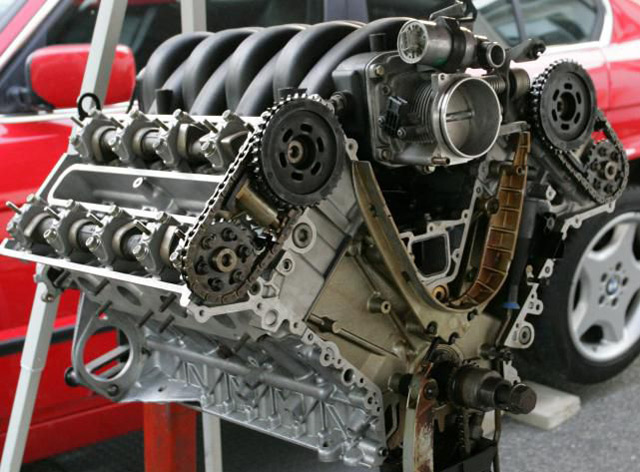
Such equipment was installed, belonging to the fifth and seventh series. The average mileage before overhaul among European consumers was 450-500 thousand kilometers. However, this drive unit was discontinued due to Canadians and US residents, whose sulfur content in gasoline was not standardized at that time. As a result, the innovative nikasil coating of the cylinders simply collapsed, and it was required complete replacement block, which cost the owners of cars a huge amount. In subsequent models of power units, preference was given to a cheaper and more reliable option - aluminum coating.
Video on how internal combustion engines work:
What does reliability depend on?
In most cases, the durability and reliability of motors is determined by the applied technical solutions, as well as the production culture at the enterprise. However, there are a number of factors that depend solely on the consumer:
- Timeliness of service;
- Quality of fuel and consumables used;
- Driving style;
- Perform preventive diagnostics.
Therefore, it is worth remembering that even after with the most reliable and structurally perfect engine, one should not expect exceptional durability from it if the attitude is wrong. The best option would be to undergo periodic preventive maintenance at a specialized service station or do the work yourself if you have the appropriate qualifications.
The best prices and conditions for the purchase of new cars
Credit 4.5% / Installment / Trade-in / 95% approval / Gifts in the salonMas Motors
As you know, there are no perpetual motion machines, but all motors are different - the models of power units of modern cars have different service lives, and besides, they have their own characteristic malfunctions.
This article will consider both the most reliable engines in the world that do not break down for a long time, have a very good resource in terms of mileage and hours worked, and not the best power units.
Recently, about the engines-"millionaires", which were many in the 80-90s of the 20th century, are practically not heard, it is possible that automotive companies it became unprofitable to produce reliable engines. On the other hand, the newly developed motors have not yet traveled a certain number of kilometers, and it is too early to judge their quality. In this article, we will cover the topic of what modern engines the most reliable and durable, and have already proven themselves in the market, are very popular.
Among the most persistent internal combustion engines, power units from manufacturers Mitsubishi, Honda, Toyota, Opel, BMW, Mercedes are most often noted, but not all engines from these companies are successful, there are also frankly weak engines with characteristic defects. Again, engines are different in power, therefore, in order to make a rating, it is necessary to divide all power units into car classes.
Often there is a dispute among motorists, which engines are more reliable - Japanese or European? Recently, Toyota and Honda have increasingly taken the lead, while companies such as Audi, Volkswagen and Peugeot are losing their positions. We are not talking about VAZ engines at all, it seems that domestic engines do not compete with foreign internal combustion engines? 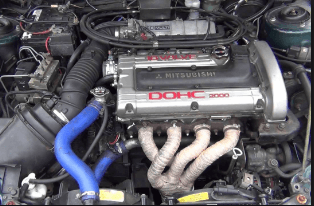
Unlike gasoline engines, diesel engines are more capricious in Russian conditions, and more often rating compilers in Russia note engines that are prone to breakdowns. Among the most reliable power units, diesel engines from Mercedes and Nissan stand out, and Subaru diesel engines are also in good standing. Opel diesels are somewhere in the middle of the reliability rating, but Russians have a lot of complaints about Renault engines. It should also be noted that “atmospherics” are more reliable than turbodiesels - the turbine often breaks down and causes a lot of trouble for car owners.
If speak about Volkswagen diesels, then a four-cylinder diesel 1.9 TDI (models ASZ and ARL) is considered “indestructible”. This motor is available in various modifications, it “digests” Russian diesel fuel well. 1.9 TDI can go both 400 and 500 thousand km before a major overhaul - a lot depends on the operating conditions and timely maintenance.
It’s still not easy to answer the question of which diesel engines are the most reliable - among good practical engines there are not only “Japanese” and “Germans”, but also “Americans”, for example, good internal combustion engines are produced by Ford. Often reliability is determined by the percentage of breakdowns for each car, but the complexity of the breakdown itself is not taken into account. Nevertheless, it is better to turn to the reviews left by users - the popular opinion is always more objective. 
As is known, on modern cars Ford installed three types of gasoline engines:
- Duratec;
- Zetec;
- split port.
Split Port motors are not famous for their reliability, their sore point is the valve seats falling out of the cylinder head. The Zetec internal combustion engine with a timing belt drive is considered the most problem-free, on Ford vehicles Focus and Mondeo are mainly equipped with Zetec 1.6 and 2.0 liter power units. The 1.6-liter engine is generally not bad, but somewhat weak, but the two-liter engine is the most reliable:
- practically does not consume oil (occasionally consumption is observed after 150 thousand km);
- starts well in any frost;
- has excellent dynamics;
- the timing belt at the motor almost always takes care of its resource (120 thousand km);
- with careful operation of the internal combustion engine, 350-400 thousand km or more can pass without problems before overhaul.
There are complaints about Duratec chain motors, although in some cases they also serve 500 thousand km. A popular engine on Ford Focus / Mondeo, Mazda 6 cars is Duratec HE with a volume of 1.8 liters. These motors often float idling, oil is consumed above the norm, but the chain runs for a long time - its replacement is required on a run of 200-250 thousand km. 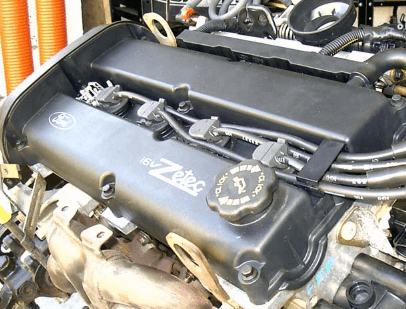
Honda powertrains are renowned for their reliability, and according to research in the UK, Japanese Honda engines rank first in the least number of breakdowns per car in percentage. The most popular among Honda engines are the K20 series models; in 2001, these engines replaced the F20 and B20 ICEs. Two-liter power units have a good power reserve, on average, no more than one liter of oil is consumed per 10 thousand km, the standard engine life is 300-400 thousand km. But you need to operate the engine carefully, and it should be noted that the K20 is not intended for sports competitions, does not “like” bad oil and low-quality gasoline.
Car owners respond very well to the B20B engine, and some boast that the car starts with it in any frost. However, it should be noted that frequent cold start of the internal combustion engine at temperatures below minus 25ºC without preheater reduces the resource of the power unit. And also, no matter how good engine was not, if poor quality is poured into it motor oil, do not service the motor, overheat, the engine will quickly fail and turn out to be completely unreliable. 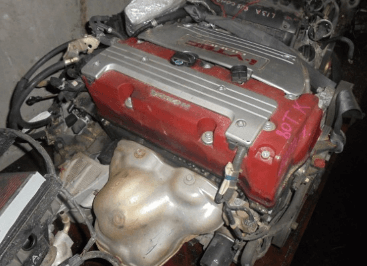
Legendary engines - "millionaires"
It is believed that in the eighties, automobile engines were produced that could operate up to 1 million km without major repairs. In particular, it seems that one of these power units is the Mercedes-Benz ICE model M102 (installed on Mercedes cars in bodies W123 and W124). But in the world everything is relative, and for some car owners this engine did not nurse even 200 thousand km - a lot depends on the operating conditions.
There are also legends about "Toyota" 2.5-liter diesel engines, about Mitsubishi 4G63 gasoline engines. Of course, these internal combustion engines have a very good resource and honestly work out their million kilometers, but with one caveat - overhaul (and even more than one) during the life of the internal combustion engine is still carried out, since the cylinders cannot be eternal, and they wear out after 300 -400 thousand km. Those motors that continue to operate longer are already losing their power.
Although VAZ engines are not included in the rating of reliable automotive power units, it is worth talking about them. The VAZ cars themselves are characterized by poor build quality, a large number of defects, but the Lada engines are surprisingly reliable, 8-valve internal combustion engines are considered especially successful.
For VAZ-2112 engines, the normal run to overhaul is 200-300 thousand km, although the manufacturer claims a resource of 150 thousand. VAZ-21083 engines, during normal operation and timely oil changes, can last even longer - up to 400 thousand km.
VAZ comes across 16-valve engines, which immediately begin to "crumble":
- appears increased consumption oils;
- various knocks occur in the internal combustion engine;
- oil appears in the candle wells;
- the engine is prone to overheating.
Unfortunately, all VAZ products are a kind of lottery, and the defect rate at the factory is quite high. But the very design of the engines can be safely called successful - the engines sometimes endure considerable “bullying” of drivers, and at the same time they also survive. 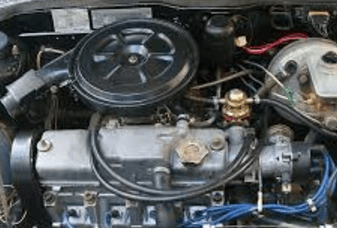
ABOUT Renault engines it is impossible to speak unambiguously - in the line of power units there are both successful models and frankly weak ones. The 8-valve engines K7M and K7J, respectively, with volumes of 1.6 and 1.4 liters are considered very reliable. The design of these engines is very simple, and there is practically nothing to break here. The timing drive of French engines is belt driven, the valves are adjusted by screws, there are no hydraulic lifters. K7M is the most popular - it is installed on cars Renault Logan/ Sandero / Symbol / Clio, also this power unit is equipped with cars manufactured by VAZ Lada Largus. K7J is good for everyone, but its power is not enough for a mid-size passenger car.
The K7M motor has a timing belt drive, it is recommended to replace parts of the gas distribution mechanism after 60 thousand km. The engine resource is very good - on average, internal combustion engines are nursed for 400 thousand km without overhaul.
Renault has engines with low reliability - these are 1.5 / 1.9 and 2.2 liter diesel engines. The problem of motors is quite serious - it knocks from loads crankshaft, and the knock of connecting rod bearings is definitely a major overhaul with all the ensuing costs. The resource of Renault diesel engines is small, and the "capital" may be required after 130-150 thousand kilometers. 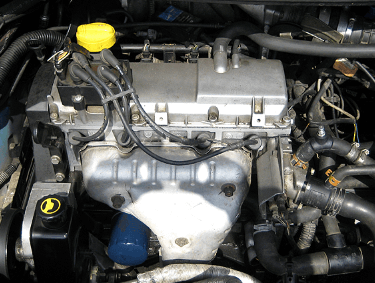
Myths about super reliable engines
Reliability car engine- the concept is relative, since not everything depends on design features power unit. One and the same internal combustion engine, even if it is three times “millionaire”, can be quickly disabled in inept hands with a careless attitude. At the same time, a motor of not the most successful design can last a long time, but for this you need:
- fill in high-quality engine oil that meets the technical conditions, preferably always of the same brand;
- change the oil according to the regulations;
- in no case do not overheat the internal combustion engine;
- do not allow the motor to operate at increased loads (at constant high speeds).
If you follow all the rules of operation, the engine will work for a long time.
